#i read all of these but i think my most read CURRENTLY is literary fiction followed by horror and then romance
Explore tagged Tumblr posts
Note
Hi! I hope I'm not bothering you, but I just had a moominsummer madness book lying around and noticed that this Fillyjonk reminded me a lot of Machete. With the long, miserable snout, the big sad eyes, clothing and all :)
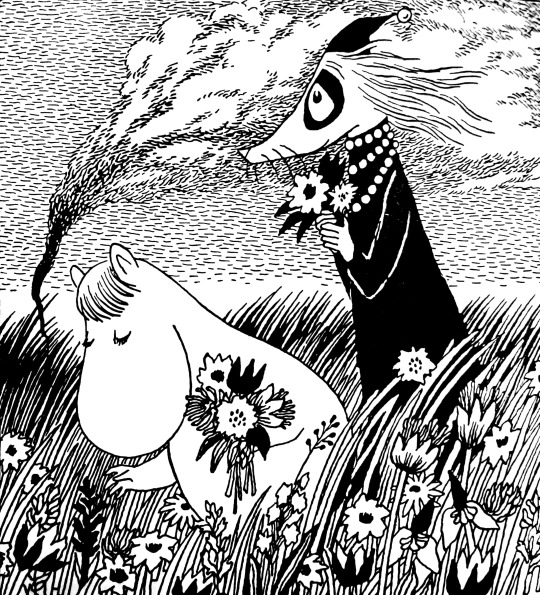
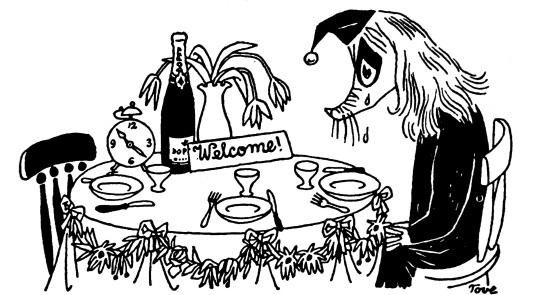
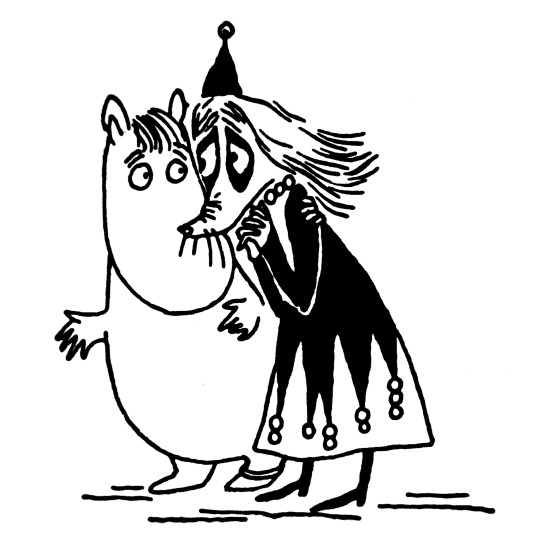
You're not bothering at all! I've mentioned this before a couple of times but Moomins are essentially embedded into the marrow of my bones, I've been an admirer of Tove Jansson and her creations a lot longer than I can remember. Fillyjonks (multiple separate characters, including the one you mentioned from Moominsummer madness) are some of my favorites, so I wouldn't be terribly surprised if some of their neurotic energy had influenced my dogs as well.
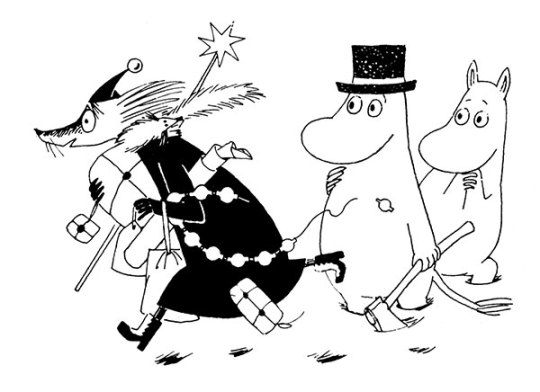
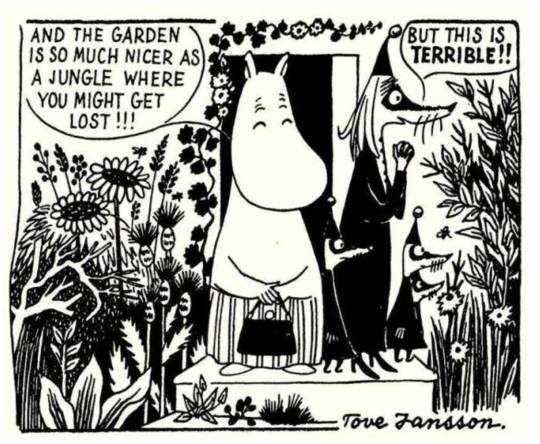
I think the most Machete-like fillyjonk is the one from the short story Fillyjonk who believed in disasters. It's one of my favorite pieces of literary fiction. Despite it's shortness and simplicity, the way it captures the crushing banality and loneliness of everyday anxiety and paranoia changed my brain chemistry when I first read it. It's currently quite easy to find online in English.
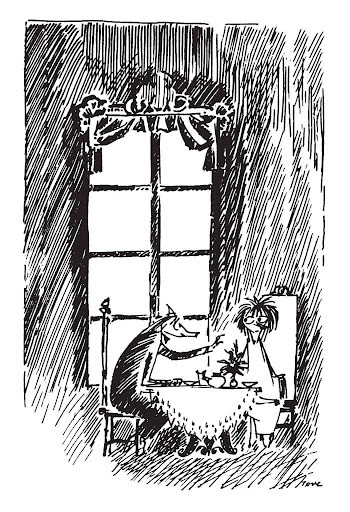
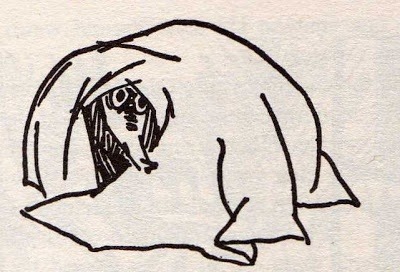

#look they even have his tiny clip cloppers#answered#mitochondria-larson#irl Vaschete sightings#long post#I'm not that interested in collecting any merch or such#but them Moomins man they have an iron grip on my insides#I've noticed that it's mortifyingly easy to tempt me with any random object that has a picture of Sniff on it#holds him gently
549 notes
·
View notes
Note
Hi OTNF and everyone,
I am finding that it's harder and harder and harder to get into anything - book, show, movie... most things seem, you know, to just not be doing it for me, be it fanfic or original stuff.
In part, I think, it's a general restlessness and that it's become harder to give anything enough time to get into the stories, the characters, the settings, the narrative voices... I guess you can call it attention deficit on my part, just a need for stories to deliver those sweet, sweet hits quickly, but they're not.
I'm not currently ficcing but I did for years (might again in the future, who knows), and it's made reading, specifically, harder. It's like I've become more aware of what goes on behind the scene, I guess? I feel like I can see the writer giving up on a sentence, skipping a scene because fuck this, trying hard to not repeat a word although it's the only one that fits, etc.
Or maybe it's just the *everything* around us in the world that is weighing on me too much? I could say it's adult life, but then again I have more free time than most (and boy do I need hours of doing nothing to survive the other hours), and no family/partner (all that would put even more pressure on me): what is wrong, to make everything so UGHHH?
I feel like I'm stuck in a rut with a brain moaning feed me, feeeed me, and whatever I try to give it, it spits everything out. (Yes, I've tried hobbies, and nothing sticks there either. I've never really found rewards or satisfaction there, so...)
Decades ago as a kid, I was a voracious reader, although studying literature took the pleasure of it away from me. It took time and discovering fanfic that brought me back to reading, but at the time the internet was starting to be a thing, too, and it can't have helped the attention thing. AFAIK I'm not ADHD but then again, I couldn't get a proper diagnosis (the therapists I saw were either dismissive or just about The Talking, which was pointless for me).
I just wonder how it all disappeared, you know? Sometimes I find something that catches my attention for a while - a book (but I read quite quickly when motivated), a fandom... but it's been a while now, and it's just so frustrating! When is it going to come back? Will it ever? *gulp*
I know that books were escapism when I was a child, and then fandom was escapism, but at the moment I find myself grabbing at air and my empty hands are mocking me. Give me my escapism baaaaack!
So, uh. Anyone here with me?
--
Yes.
I felt like that during part of lockdown. Anhedonia is common in those kinds of circumstances.
Getting your mojo back is certainly possible, but you may need to go see a professional about depression and have some chemical assistance (yes, even if you don't feel sad per se), or you may need to change your lifestyle to one that doesn't have the thing causing you to need eleventy billion hours of downtime.
Aside from serious interventions like that, you can consider a social media detox. Remove every source of doomscrolling and time wasting of that type. When the attention span is zero and nothing brings joy, the tiny and useless hits from finishing a game of solitaire or seeing one more instagram post become very attractive. This is a trap. It will suck what little energy and joy you have and make your muscles flabby for the work of getting into an in-depth book/hobby/experience.
I know the feeling of being able to see how the sausage is made, but... well... first, being in a better mental state will make that matter less, and second, reading prose that is more competent will make that less of an issue. A lot of mainstream tradpub genre fiction is not, in my opinion, very well written these days. Obviously, people are still enjoying it, and that's fine, but if you're noticing writers fumbling around, it might be time to check out some literary fiction or some other category known more for prose quality than anything else.
It's also important to have some structure and some things to look forward to. Even if you feel tired, overwhelmed, and busy, sometimes, the answer is to do more... But it must be things that are distinct and significant and that get you off of the couch, like going to one museum every weekend.
I saw some advice once about this kind of thing that phrased it as "One big adventure; one small adventure."
Every week, you should have those two things to look forward to that matter. Check out a new coffee shop. That could be the small one. Go to an event: a gallery opening, a concert, whatever.
Physical exercise and doing some things that aren't as verbal and conscious thought-involving is important too. Painting is a better hobby for zoning out than writing is. Taking long walks in nature is good for most people.
--
The kind of intense, obsessive love I had for reading as a child and that I sometimes have for fandom requires a lot of attention and some time. It's escapist, but that masks how much work it actually was. It didn't feel like work only because we were in training.
If you've filled your brain and your day up with a thousand petty annoyances or minor and useless attempts to feel something, you won't have the capacity for those deeper things.
Because you are already at a point that's equivalent to a bad sprained ankle, trying to get back to running right now won't work. You have to stay off of the ankle for a bit, then build your strength and stamina back up.
222 notes
·
View notes
Note
hello my friend! currently rereading dracula, as you know, and wondered if you have any recs for where to start with criticism about the novel? 🖤
This question makes me so happy! <3
I am dreadfully out of date on this, but I can certainly give you places to start; these are not all necessarily recommendations for criticism I like (there's precious little of that), but more introductions to classic criticism in the field.
The classics
The Norton Critical Edition of Dracula (edited by Nina Auerbach and David J. Skal), alongside the Cambridge Companion to Dracula, are both good introductions which collect representative examples of some of the most popular scholarly strains of thought on the novel. When someone asks me to recommend an edition of Dracula to start with, I always suggest the Norton.
Leonard Wolf (who was not Virginia Woolf's husband, but who was one of Anne Rice's college professors) was one of the most important voices in the critical reevaluation of Dracula which started in the 1970's. I often disagree with him (so much so that I once wrote a fic about how much I disagree with him), but his annotated edition of Dracula was my first. His important works are A Dream of Dracula and Dracula: A Connoisseur's Guide. He (along with Radu Florescu and Raymond McNally) was an important early proponent of the "Dracula is Vlad Tepes" theory, which was hotly opposed by...
Elizabeth Miller, ornery grand dame of Dracula criticism. She is extremely invested in being the most reasonable and the least prone to flights of fancy of all the critics, which means she does often say useful things, but she's also a little boring. She's best known for Dracula: Sense and Nonsense, but it's more a litany of complaints than actually analysis. Her books in general have useful primary source stuff.
Once you get into analysis of Dracula reception and adaptions, then I can with a full heart recommend David J. Skal's Hollywood Gothic, full of delightful trivia, which was truly Skal's strength.
Recommendations I more stand by:
Donald Glover's Vampires, Mummies, and Liberals: Bram Stoker and the Politics of Popular Fiction is one of the very few works of Dracula criticism that I thought actually dealt in any kind of thoughtful way with the racial politics of the book.
Christy Desmet's essay on Ophelia, Ellen Terry, and Dracula, collected in Shakespearean Gothic, was excellent and I still think about it; the whole collection is very much worth reading.
Loved Ann-Louise Kibbie's Transfusion: Blood and Sympathy in the Nineteenth Century Literary Imagination, which isn't all about Dracula but obviously deals substantially with it.
As a teenager I had a lot of fun reading the uploaded issues of The Journal of Dracula Studies and sometimes fantasized about submitting something to them while concealing my age/lack of higher education to see what happened (I never did). I remember feeling very vindicated by Katharina Mewald's "The Emancipation of Mina?" but don't know how it would hold up now. I haven't kept up with the most recent issues (perhaps I will start!) but at a glance there seem to be some interesting things.
ETA forgot about Allison Case's Plotting Women: Gender and Narration in the Eighteenth and Nineteenth Century Novel! Good Mina material, comparing her with Marian in Woman in White.
#another important note about my copy of the leonard wolf annotated dracula is that's stained with my blood but that detail is going in tags#dracula#criticism#recs
101 notes
·
View notes
Text
2025 Anticipated Book Releases
I have a number of anticipated book releases for 2025, but not as many as last year I think. Which is kinda good, because I can work on reading what I have on my physical tbr and backlist tbr too. I love new releases, but I need time to read other stuff too!
January:
Breath of the Dragon by Fonda Lee and Shannon Lee (Jan 7th): YA asian fantasy with dragons, featuring a martial arts tournament. I'll read anything by Fonda Lee I think, and this seems fun!
Adrift in Currents Clean and Clear (Wayward Children 10) by Seanan McGuire (Jan 7th): I think this is the last book? I remember reading somewhere that Seanan said it's only going to be 10 books? Either way, I'll cry when it's over.
Motheater by Linda H. Codega (Jan 21st) this seems to be some sort of witchy queer appalachian folklore story, and I am all here for it. I want all the rural gothic vibes please.
Carving Shadows into Gold by Brigid Kemmerer (Jan 28th) I've been waiting for the sequel to Spinning Silver into Stars for a while now, and I'm super excited to finally get this. I might need to reread book 1 in January
February:
Black Woods, Blue Sky by Eowyn Ivey (Feb 4th): I've been waiting for a new Eowyn Ivey book for years, and we're getting a beauty and the best retelling set in Alaska that is literary fiction/magical realism, I couldn't be happier
Emily Wilde's Compendium of Lost Tales (Emily Wilde 3) by Heather Fawcett (Feb 11th), one of my most anticipated releases of the year, and the final book to one of my favorite on-going series. A lot of people are excited for this one.
March:
Fable for the End of the World by Ava Reid (March 4th): I'll read everything Ava Reid writes, and this is her first queer dystopian book. The covers are beautiful, and I need to read Lady Macbeth before this comes out!
Oathbound (Legendborn 3) by Tracy Deonn (March 4th) Another one of my most anticipated releases of the year. Legendborn is just fantastic, and I would consider taking the day off of work just to start reading this
Wild Dark Shore by Charlotte McConaghy (March 4th) A mystery thriller set on an island near Antartica, with nature and climate themes like McConagly's other books. I need to read her Once there were wolves before this comes out
May:
The Sun Blessed Prince by Lindsey Byrd (May 1st), this looks like a queer fantasy and characters who have life/death powers. Seems like something I'd be interested in.
The Incandescent by Emily Tesh (May 13th) A queer dark academia book about the director of a magical school.
The Knight and the Moth by Rachel Gillig (May 20th) I wasn't a huge fan of Gillig's other book, but I'm 100% willing to give this a try. A heretic knight and a prophetess must team up to save her missing sisters. The cover is beautiful too.
June:
The Tower of the Tyrant by JT Greathouse (June 19th) This seems like the start of a new epic fantasy about a sorceress going on a quest. I'm interested in this author's other published books too.
A Far Better Thing by HG Parry (June 17th): I'll read anything Parry writes, and this a portal fantasy during the French Revolution.
The Listeners by Maggie Stiefavter (June 3rd), Maggie's first adult book, and historical fiction set in Appalachia during ww2.
Second half of 2025 or Release Date to be determined:
While the Dark Remains by Joanna Ruth Meyer
Hot Wax by ML Rio
Hemlock and Silver by T Kingfisher
A Land So Wide by Erin Craig
Katabasis by RF Kuang
That's all for now! Release dates are susceptible to change, and there will probably be more books I add over the new year. If you comments/thoughts please share them with me!
#2025 anticipated book releases#2025 books#book releases#new books#fantasy books#bookblr#booklr#my post
71 notes
·
View notes
Text
A Tale of Two Memoirs, Part I
Publishers Marketplace
Category: Humor: Debut
THE WORLD’S GREATEST DETECTIVE By Batman
Imprint: Monarch Press
Batman’s THE WORLD’S GREATEST DETECTIVE chronicles the life of Gotham’s brooding superhero, from his traumatic origins as an orphan to his rise as the greatest genius the world has ever seen. In this tell-all memoir, Batman uncovers it all – except his secret identity, of course – to Scott Lobdell at Monarch Press, in a nice deal, by Judd Winick at Diamond Literary Agency.
Translation: [email protected]
Bruce reads the book blurb twice before it sinks in. Rolling his eyes, he reaches for his phone. “I just got your email. Very funny,” he deadpans as the call connects. But Dick doesn’t laugh, and as the silence stretches on, Bruce straightens in his chair, all his senses on high alert. “Dick?”
Dick sighs. “You didn’t read the attachment.”
Bruce frowns but opens the PDF, labeled BATMAN_MEMOIR_SAMPLE. He doesn’t say a word, refusing to give Dick the satisfaction of knowing he was right.
“Babs picked it up,” Dick says as Bruce starts to read, his horror growing with every paragraph. “And at first she thought it was a joke too. You know, there’s dozens of unauthorized Batman books out there –”
“Hundreds,” Bruce corrects distractedly as he scans, “And has the Geneva Convention actually outlawed child soldiers? And what if said child soldier struck a hard bargain, like he refused to eat his sprouts unless I allowed him to kick rapists in the nuts? Underneath the Bat cowl, emo greasepaint, and kevlar-weave cape, I am still only a man. And a man knows children must eat their sprouts.”
Alfred still hasn’t forgiven him for losing that particular argument with Jason, nearly three years ago now.
“– but this one, underneath all the sarcasm and exaggeration, has a concerning amount of truth,” Dick continues, like Bruce can’t read the words in front of his own face.
Bruce clears his throat. “Who is the author?”
“That’s just it,” Dick says grimly. “The pseudonym has been,” he inhales a sharp breath, “difficult to crack.”
“Hn,” Bruce grunts, dissatisfied.
“We’ve been working on tracking down the first advance payment for a week,” Dick says, and Bruce is only a little gratified to hear the current of frustration running through Dick’s voice. “But it was wired from Gotham through the Caymans to a Swiss Bank account.”
“Have you gone through the agent’s email?” Bruce asks as he opens the Batcomputer’s most powerful hacking program.
“Give us some credit,” Dick says, and Bruce can almost hear his eye-roll. “Whoever’s on the other end uses a burner email and a damn good VPN, unless you really think they’re spending their time writing this thing from Nantes, Cologne, Prague, Somalia, London, and Novosibirsk.”
“Probably not,” Bruce acknowledges as he searches for every email between Conway and the author, who Conway just refers to as “JP”. “Have you read the entire manuscript?”
“I’m about three quarters of the way through it,” Dick says. “Babs has read a few chapters here and there. Whoever they are, they know way too much about us.”
“Our identities?” Bruce asks, his voice curt.
“Not mentioned by name in the manuscript,” Dick says, and, for the first time, he sounds genuinely worried. “But anyone who reads this critically will be able to put the pieces together, assuming they don’t take it as a complete fiction.”
“We can’t bet on that.”
“Absolutely not,” Dick agrees.
Bruce pinches the bridge of his nose, thinking. “Who else knows about this?”
“Just us and Babs,” Dick says. “Tim’s in the dark for now, but he was my next call after you. You know the kid, if he thought he could provide any help at all, he wouldn’t be sleeping for a week and stalking that agent from here to Shanghai.”
“You say that as if that’s not my next step,” Bruce says as he lumbers to his feet. He has a stakeout to plan.
“Already on it,” Dick says. “You just got back from patrol. Sleep. I’m not due at the gym until 3pm tomorrow, so you can take it over in the morning from the office. Who knows,” he continues wryly, “maybe Bruce Wayne can do more than Batman.”
“That is foolish. I don’t want any increased attention on the connection between Batman and Bruce Wayne.”
Dick hums. “But isn’t it already widely speculated that Bruce Wayne funds the Justice League? You could spin it like you’re just looking out for your good friend, Batman. And, of course, slap the publisher and the agent with about a hundred NDAs.”
“NDAs aren’t watertight,” Bruce says tightly. “At the end of the day, they’re just paper. It’s much better if they never find anything out in the first place than try to clean up the mess after the fact.”
“Fine,” Dick groans. “Don’t listen to me. Look, Winick is stepping out for a smoke. I got this. If I see your face when you could be sleeping –”
“I’ll be there in fifteen minutes.”
Dick sighs obnoxiously loudly over the poom of his grapple firing. “Don’t say I didn’t warn you,” he says, resigned. “And you’d better bring the good protein bars,” he says, his tone lightening. “Not the ones that taste like ass.”
Despite himself, Bruce smiles at the old argument with his first Robin. “Wheat germ is an excellent source of nutrit–”
“Bye, Bruce!”
Bruce purses his lips as his comm goes completely silent. Dick put him on mute, save for emergencies. Still, he grabs several peanut butter bars (Dick’s favorite) on his way out.
* * *
Between the four of them, most frustratingly, they cannot find the author’s identity. They set up every bug in their arsenal in Winick’s home and office, and Conway’s too for good measure. They clone all their correspondence and plant GPS trackers in their phones.
Eventually, back-to-back Arkham breakouts and an intergalactic incident force them to put the matter on hold, that is, until the mysterious JP hires a literary PR firm seven months before publication.
Bruce buys the PR firm.
JP hires another one.
Bruce buys that one too.
After the third PR buyout, Dick puts his foot down as Tim snorts with laughter.
“Look,” Tim says once he recovers enough to shovel a small mountain of scrambled eggs onto his plate. “You know the best way to stop a scandal from going viral.”
Bruce narrows his eyes. “Create a bigger scandal.”
Tim nods as he passes Dick the cereal without asking. “But, this time getting drunk at a party and breaking a tower of Cristal won’t cut it.” As Bruce nods along, Tim adds, “You have to fight fire with fire.”
Bruce sighs. “You’re saying I should put out my own memoir.” He’d been mulling it over himself, but since Tim came to the same conclusion, that tips the hypothetical solution into a real answer.
“Bingo,” Tim says as Dick chokes on his Frosted Mini Wheats. Tim gives him a few half-hearted whacks on the back, not really powerful enough to hurt (or help) Dick at all.
“But you’ve always said you’d never write a book,” Dick says, red faced, as he sets his spoon down. “Half of it would have to be lies, and you know the entire Justice League would read it cover to cover and give you such shit. Clark would definitely pull every string he had at The Daily Planet to review even though he’s not a book critic –”
“Desperate times,” Bruce says grimly as he drains his third coffee of the morning.
“Bruce,” Dick says, his tone reproachful. “You don’t need to write a whole goddamn book. Just buy the publisher and kill it. You know as well as I do, it works –”
Bruce already thought of that. “There would be questions.”
Dick rolls his eyes. “By the publisher and editor, maybe. Three, maybe four people max would think it was weird and move on in, like, a week.”
“I don’t want any suspicions, Dick.”
Tim sagely nods along as he takes an enormous bite of eggs.
Dick just sighs and mutters something completely unflattering about Bruce’s flair for drama and tendency for paranoia. Bruce ignores him. He has a book agent to find.
Bruce’s Wayne’s book deal indeed rocks the publishing world. Nobody can believe Bruce Wayne’s first memoir goes to Monarch Press, an indie publishing house. HarperCollins offers him a five million dollar advance and promises the most extravagant launch party and book tour. Simon & Schuster throw their hat into the ring with a seven million dollar advance. Penguin Random House opens with eight million dollars and sends him a custom fruit basket with every celebrity & lifestyle book they published last year.
But, as Bruce tells the media, he doesn’t need the money. And he’d much rather work with a Gotham-based small business like Monarch Press than one of the Big Five. He donates his paltry one million dollar advance to the Wayne Foundation to redistribute to the needier sectors of Gotham.
The only stipulation to his publishing contract? His book must be published in six months (coincidentally the same month as The World’s Greatest Detective).
The publishers hem and haw but eventually give in. They can’t afford to piss him off, not the author of their guaranteed best seller in the history of the imprint.
* * *
The Monday after his book deal hit the news, Bruce finishes reading The World’s Greatest Detective during a late-night stakeout. At 2:18 in the morning, he puts the manuscript down and beats Maroni’s chief enforcer to a bloody pulp.
“Batman!”
Batman slams the enforcer into the metal side of a heat vent bellowing ashy steam into the windy winter air.
He groans and spits out two teeth.
Batman raises his fists.
“Batman!”
A hand with an iron grip lands on his bicep and yanks him forcibly backwards.
“Batman, you’ve got to stop,” Nightwing hisses in his ear.
Bruce falters. He looks back at his first Robin’s face, his alarm clear as day, despite the domino mask covering Dick’s eyes.
“I’ve got him,” Nightwing says as he lets go to grab a pair of zip ties. “Go take a breath.”
Bruce exhales harshly. His breath plumes in front of his face. “I –”
“Go,” Nightwing repeats, a little louder. “Robin is on comms. He called me in.”
Bruce swallows. Tim should be studying pre-calc, not monitoring comms on what should’ve been a quiet night. Guilt stirs in the pit of his stomach, but he shoves it down. “Robin?”
On the other end, Tim coughs. “Er, yeah, Batman?”
“Thank you for sending in Nightwing.”
“Oh!” The weight of Bruce’s guilt doubles at the relief in Tim’s voice. “Yeah, of course. He was just hanging around here, and I knew you told me to stay put because of my test tomorrow, but Nightwing was free so…”
“B,” Nightwing jogs over, “you good to call it a night?”
Bruce just grunts.
“Yeah, I thought so,” Nightwing says grimly as he steers Bruce to where the Batmobile is waiting. “What the hell happened?”
Bruce doesn’t have the words to answer, so he just gets in the car, slams the door shut behind him, and starts the engine.
Dick, well used to his moods, doesn’t prompt him again, but he doesn’t start a new conversation either. He just waits, waits until –
“I finished the Batman memoir.”
“Ah,” Dick says carefully as he thinks through his next words. “The Jason chapter?”
Bruce’s fingers tighten to a stranglehold on the steering wheel. In a low voice, he confirms, “The Jason chapter.”
Dick scrubs his face with the heel of his hand. “Yeah, that one’s a doozy.”
“The way it implies – ” Bruce breaks off as all the rage, frustration, and grief he couldn’t punch out crawls up his throat. It chokes him instead.
“You know,” Dick starts gently before correcting, “ I know it wasn’t like that. I may not have been around for all of it, but I could tell, even in the brief glimpses I saw, that you loved him. He knew it too; he would have never settled in at the Manor, trusted you, or put on the colors otherwise.”
Bruce stares straight ahead, jaw clenched.
“And, hey,” Dick says as he moves to stare out the windshield too, “If you want to set the record straight, you’ve already got an editor lined up whose exact job is helping you say what you want to say.”
“I don’t know what to say about him,” Bruce mutters, and he knows as he is saying them out loud that the words are wrong, but he can’t find the right ones. How can he possibly do Jason justice?
Jason was his son. He was his Robin. He loved literature and hated tomatoes. He was loyal to a fault but refused to listen to orders he didn’t believe in. He would never let an innocent suffer, but god help any rapist, murderer, or abuser that strayed into his path.
Anyway, Bruce trusts Dick to hear what he’s really saying. And sure enough, Dick responds, his voice almost cheerful, “Well, you can’t ever go wrong with spite. You can start by pointing out exactly where the Batman memoir got it wrong.”
Bruce steals a glance at Dick. “You know, you wouldn’t make a bad editor, yourself.”
Dick grins. “You know that first summer I led the Teen Titans full-time?”
Bruce’s eyes narrow.
“I lied. I got a part time internship at The Planet.”
Bruce valiantly resists the urge to facepalm. “That was before we trusted Superman.”
“That was before you trusted Clark,” Dick corrects. “I apologized on your behalf for that time you stabbed him with kryptonite, by the way. My first day. After that, he personally took me on as his editorial assistant.”
Bruce sighs. “Of course he did.”
* * *
His editor is deadly serious; Bruce’s memoir must be written yesterday to make their scheduled publication date. Or, in other words, his manuscript better be in publishable shape in exactly one month.
Bruce assures her that he has the best ghostwriter in the business on it. He quickly sets up a fake email, bank account, and business with a tax history going back seven years, and gets to work. He gives himself one week to research, one week to write the thing, one week for Alfred and Lois to review it (Bruce would never give Clark the satisfaction), and one week to incorporate Alfred and Lois’s changes.
In theory, that was what was supposed to happen.
In reality, Bruce spends four and a half days reading through old tabloids to remember the exact lies he told them, three days rereading his old journals to remember what he was actually doing, and three more days poring over his old case files to fill in the remaining blanks. He then spends two days typing up his notes, desperately trying to convince himself that he is not procrastinating writing the damn thing. And, finally, he spends almost a full day staring at his blank document helpfully labelled “Chapter 01” and tries not to map the fastest route to the deepest trench in Atlantis where his editor’s emails would never find him.
He groans and buries his head in his hands. This was moronic. He has never written a book before for one reason, and not the one reason he gave Dick all the years ago.
In truth, Bruce has never been a “creative” type. Rather, he’s always prided himself on his logical mind. He’s a realist, not an artist. He’s a billionaire who pays designers and curators to furnish his multiple homes and assemble his art collection. For god’s sake, the first time Bruce gave himself “creative license” he donned a cowl, cape, and dressed up as a bat.
History isn’t exactly working with him here.
In the deadly silence of his study, his phone blares, “Carry on, my wayward son! There’ll be peace –”
Bruce accepts the call without looking at the screen, grateful for the distraction, even if it comes from one of the last people he wants to speak to right now. “Clark.”
“Bruce,” Clark greets in kind, and Bruce can practically hear the knowing smile in Clark’s voice. It does not help his mood.
After a beat, he says reluctantly, “To what do I owe the pleasure?”
“A little birdie told me you’ve been struggling with writer’s block.”
Bruce scowls. “Dick.”
“Alfred, actually,” Clarks says lightly, and Bruce swears under his breath. “He said you’ve taken all your meals for the past two days in your study and have only left to relieve yourself and go out on patrol.” Clark pauses, clearly trying to hold in a laugh. “Seriously, Bruce?”
“Hn.”
Clark chuckles. “Don’t worry, writer’s block happens to the best of us.”
“To the best, really?” Bruce gripes. “So how does Lois handle it?”
Clark doesn’t comment on Bruce’s petty jab. Instead, he says, “She has her ways. I don’t recommend them.”
“Why not?” Bruce asks, intrigued despite himself.
“She’s an adrenaline junkie,” Clark says, his voice flat as his home state. “She says she does her best writing in the field. According to her, she composed her most Pulitzer-winning lede falling thirty stories off Siegel Memorial.” He inhales a sharp breath. “Please don’t follow her example. I am not above begging, Bruce. I can’t catch you every time you get stuck on a transition sentence too.”
Bruce smiles. “And here I thought all Lois’s midair saves were all part of a bizarre Kryptonian courtship technique.”
“You’re hilarious.”
Bruce’s smile widens to a grin. “How are you doing, Clark?”
Clark makes a disbelieving noise in the back of his throat. “You’re normally much smoother at changing the subject.” He whistles. “You really must be struggling with that book.”
Bruce’s smile drops off his face. “I’m offended. Is it that outlandish that I would ask about the wellbeing of my best friend?”
“It’s super outlandish because you’ve been avoiding me for the past two weeks,” Clark volleys back without missing a beat. “And also, you only admit I’m your best friend when you’re actively dying. I have to assume you’re suffering through the emotional equivalent right now.”
“Hn,” Bruce grunts.
“But, to answer your question anyway because I am a good friend in addition to being your best friend,” Clark starts pointedly. “I’m doing well enough.”
Bruce rolls his eyes. Clark might be internally telling himself he’s indulging Bruce, but Bruce knows Clark’s Midwestern impulses are practically doing the conga at the opportunity to engage in smalltalk with Bruce, a practice Bruce notoriously loathes but one that Clark can’t get enough of.
The last time they flew to Maltus, Clark spoke for twenty-three minutes about Smallville’s bid to host the Kansas State Fair.
Clark continues, “Perry’s been trying to wring us for feel-good holiday stories, and, since Lois would rather eat her digital recorder than write a puff piece, I’ve been listening to her rants about the moral decline in journalism for the past week.”
Bruce grimaces in sympathy. “Has Lois just told Perry she won’t write one?”
“Loudly and explicitly,” Clark sighs. “I don’t think Perry can physically do that with a candy cane and Steve Lombard’s second-hand toboggan, but Lois has always had a way with words.”
Bruce chuckles quietly.
“You do too, you know,” Clark adds, the joking tone of his voice slipping into something more genuine.
“This better not be one of your Superman pep talks, Kal.”
“It’s not!” Clark protests, and Bruce shakes his head in disbelief. “But you are incredibly persuasive when you put your mind to it, and, of course, your head for tactics and strategy is unparalleled, even in the League. The challenge now is to translate those skills to the written word.”
“This has pep talk written all over it,” Bruce warns darkly.
“Fine,” Clark says, and Bruce can just picture him throwing up his hands. “All I’m saying is that you can do this. You know how to manipulate language and how to structure an argument.”
Bruce exhales a long, slow breath. Damn it, Clark. He does feel a little better.
“Where exactly are you stuck? Are you struggling with a particular subject? A specific chapter?”
Bruce scowls.
Clark waits.
Bruce scowls harder.
“I can see the call hasn’t dropped, and you’re just frowning at your computer,” Clark says calmly. “But look at it this way, the faster you tell me what’s going on, the faster we can wrap this up, and the faster you can pretend this never happened.”
“I need to invest in lead sheeting for the Manor walls,” he grumbles.
“I can do this all night, Bruce.”
He exhales a slow sigh. Eventually, he forces out, “I can’t start writing.”
“Oh, I’ve been there,” Clark says sympathetically. A microwave beeps in the background as he continues, “Do you know the key to creativity?”
“A multimillion dollar expense account and an inside man at Sotheby’s.”
Clark sighs. “Of course you have an inside man at Sotheby’s.”
“Of course,” Bruce agrees affably. “I’m not a peasant.”
Clark snorts over the sound of the microwave door slamming shut. “You realize you just called me a peasant, right?”
“You literally grew up on a farm. You went to an internet cafe until you were sixteen.”
“The Talon was an institution!”
“It was a relic.”
Clark tuts, and he sounds horrifically like Alfred for half a second. “As I was saying, the key to creativity is passion.”
“Are you eating Chinese food for dinner?”
“No?” A pause. “Mac and cheese, actually. Ma’s special recipe.”
“Because you sound like a fortune cookie.”
“See, this is why I’m your best friend,” Clark says in a long-suffering voice. “Because I know you’re just being testy because you’re feeling insecure, so I’m not going to let you scare me off.”
“You’re not backing off because you’re more stubborn than a mule. Friendship has nothing to do with it.”
Clark lets out a hearty laugh. “There you go, proving my point for me.”
“Hn.”
“I may sound like a fortune cookie, but I’m right,” Clark says evenly. “Don’t start with chapter one. Start wherever you have the strongest feelings, wherever you have the most to say.”
Bruce grimaces. After a long moment, he admits, “That’s basically what Dick said too.”
Clark hums. “Smart kid you got there. I’ve always thought so.”
“He has his moments.”
“Anyway, that’s my advice for writer’s block. I’ll let you get back to it and stop butting my nose in, but, B,” Clark says, “if you have any more trouble, just let me know, okay?”
“I will.” After a beat, he adds, “Thanks for the call, Clark.”
* * *
As rain starts to patter against the window panes of his study, Bruce digs out his printed copy of the manuscript for The World’s Greatest Detective. The most egregious parts, the stories that make his blood boil with rage, are already seared into his brain, but there are dozens of smaller anecdotes that ring so blatantly false he can’t help grinding his teeth as he rereads them.
Robin II wasn’t like Robin I. He was from the streets and already fourteen, almost too old to mold into what I needed. But his background made him resourceful and vigilant, two essential qualities for someone in my line of work. When I met him, he was stealing the tires off the Batmobile™. So, in addition to his resourcefulness and vigilance, he was bold. In other words, he was practically the perfect successor to Robin I.
Or so I thought at the time.
Bruce closes his eyes as the injustice, the insult , to Jason’s memory courses through him. He writes:
I met Jason when he was fourteen. He’d been on the streets for a year. If you asked him, it made him tough, resourceful, and wary of well-meaning billionaires. And that is all true, but if you asked me, I would say it made him grow up too quickly.
I never really told anyone the real story of our first meeting. It didn’t paint Jason in the best light, and I didn’t want to invite undue criticism of a child. But, now, after everything, what Jason’s memory deserves is the truth. And the truth is, I ran into Jason when he was in the middle of stealing the tires off my car.
I had come back from my errand. I stood behind him and coughed to get his attention. “You do realize that’s not yours, right?”
Jason spun around, his expression of shock morphing into something much more determined. “Duh,” he said, his tone deliberately light. “You realize you parked your car in Crime Alley, right?” and then he swung a tire iron at me.
I luckily dodged, but I wasn’t about to let him get away with my property. I struck a deal with him: my tires in exchange for a warm meal. Over burgers, fries, and milkshakes, I asked him why he thought it was acceptable to steal from people.
He stared at me before he burst out laughing. “Not real people. Rich people. They think they’re kings of the world. Pfft.”
“Sometimes,” I told him, “you just have to give people a chance, Jason. They’ll usually surprise you.”
What I didn’t know at the time was how true those words were. I gave Jason a chance, and he surprised me beyond my wildest dreams. He became my son.
Bruce presses the heels of his hands against his closed eyes. Bright spots of color burst in front of his vision, and he breathes slowly in and out. Blindly, he reaches for the half-empty glass of scotch and drains the rest of it. The smokey flavor coats his tongue and the back of his throat, and he tries to concentrate on that, tries to ground himself in the real, physical world and not in his own bittersweet memories.
It doesn’t quite work.
What is most frustrating and infuriating about The World’s Greatest Detective is how close to the truth it is. Almost every moment described in the fake memoir happened, but it’s like the author experienced everything through a funhouse mirror. Bruce’s values are warped. Details are missing. Timelines are vague.
After we returned to the Batcave™, I benched Robin immediately. His screams had distracted me at a crucial moment, and during our escape, his reaction times were compromised. He couldn’t stop shaking.
Later, once we synthesized an antidote for Dr. Crane’s toxin, Robin returned to fighting shape, physically if not mentally. Once he proved he could fight through the fear even after repeated exposure, I let him rejoin the mission – after a probationary period, of course.
In reality, Batman and Robin first encountered Scarecrow at the tail end of their first year as partners. They had been getting reports of otherwise healthy people dropping dead of heart attacks. Their faces were rictuses of fear.
Batman and Robin set out with rebreathers in their most armored suits, in case the toxin was injectable. Midway through the fight with Crane’s muscle, after an unlucky kick to the face, Robin’s rebreather cracked open.
Robin screamed, and time stood still.
As the flood of terror coursed through Bruce’s veins, he would’ve sworn he was the one to inhale a lungful of fear toxin. He appeared at Dick’s side with no memory of dispatching Crane.
Nothing mattered but Dick.
As he approached, Dick was shaking uncontrollably, whimpering, “No, no, not them! Mama! Papa!” He was crawling across the floor, one trembling hand reaching out to his falling parents.
Bruce’s heart clenched, but ignored it as he grabbed Dick around the middle.
Dick wailed as Bruce lifted him into the air, crying out, “I can’t leave them! No!”
Crane had to wait. Bruce would sooner sell his mother’s pearls to the highest bidder than let Dick stay in this state one second longer.
Dick finally quieted in the Batmobile, curling in on himself to be as small as possible. Above his folded arms, his dilated eyes looked nearly black as they flitted from one object to another for no longer than a fraction of a second.
The strain filtered out of his system after about 12 hours – Bruce didn’t develop an antidote for another month – but by the tail end, Dick was rearing to get back in the field. He needed to prove himself. He wasn’t going to stay behind.
Bruce wasn’t having any of it. But after Dick spent a solid week begging, bargaining, and making himself a general nuisance, Bruce offered him a deal. They would both voluntarily expose themselves again, and if Dick still wanted to put on the boots and cape afterwards, Robin could one again patrol with Batman.
Bruce needed to build up a tolerance to the toxin, in the event he got caught without a rebreather or he needed to give his away to someone who needed it more.
Dick needed no such thing. Instead, Bruce hoped a repeat experience would be enough to scare him out of being Robin for good, and he could be a normal eleven year old instead.
Needless to say, Bruce’s plan failed rather spectacularly.
Bruce types, Many people asked in my first few years with Dick why I waited so long to formally adopt him.
My lawyers were actually in the middle of drafting adoption papers when I called them off. Scarecrow had just made his fearsome entrance in Gotham, and Dick was one of his first victims. I kept it out of the press for obvious reasons.
But, seeing my son like that – no parent can escape that experience unchanged. Dick’s greatest fear was seeing his loved ones in danger while he stood by as a helpless bystander; the role he was forced into at eight-years-old when the Flying Graysons fell to their deaths.
I thought that the last thing Dick needed was another person that would fill that same place in his life. The chance of manipulation was too great. So, I kept him as my ward and not my son.
I know now that the distinction is meaningless. Dick was my son the moment he swung from the chandelier in the ballroom, giggling madly, as he shouted, “Watch this, Bruce!” and promptly sent it crashing to the ground. But, that day after his encounter with Scarecrow, Dick wasn’t the only one operating from a place of fear. I can admit it now; I was terrified for him. A Gothamite’s life expectancy is 4.1 years below the national average. If something happened to me, could my memory be twisted into a source of fear for him too?
Bruce lets his hands rest on the keyboard as he rereads what he wrote with a critical eye. It doesn’t sound much like his public persona, but hopefully Lois and Alfred (and maybe Clark) can take out the most out-of-character turns of phrase.
He lumbers to his feet and pours himself another drink. It’s going to be a long night. He glances out the window out of habit, but the lashing, freezing rain doesn’t offer much of a reprieve. Sighing, he sits back down at his desk.
Lightning flashes, and Bruce’s gaze catches on the reflection from his phone screen.
Before he can overthink it, he unlocks it and taps the first number on speed dial.
“Hey, Bruce!”
Instinctively, Bruce feels himself unwind at the sound of Dick’s voice. He relaxes down in his seat and sets down his glass to pick up the phone properly.
“How’s the writing going? Please tell me you’re not including the chandelier story.”
* * *
Publication week is a nightmare. Bruce goes on a mini book tour in Gotham, Metropolis, and New York, and has to endure Clark and Dick whispering and giggling in the back of the crowd while he reads out loud the most insipid drivel he has ever written to an otherwise rapt audience.
Of course, Bruce pays for it all himself because his negligible (to Bruce Wayne) advance nearly bankrupted his indie publisher. But it wouldn’t do for Brucie Wayne to put on zero press for his most public-facing stunt since launching the Wayne Foundation, so he has to throw himself to the wolves on his own dime.
Grinning broadly, Clark buys five copies at the Metropolis speaking event and gets a scowling Bruce to autograph them all. Clark ships two to his parents, gives one to Jimmy, keeps one for himself, and donates the last to the Watchtower library.
Bruce wastes no time in ejecting the Watchtower copy into space. When another one appears three days later, he burns that one in his private quarters. And when two more take its place, Bruce tucks them under his cape and hurls them into Gotham Bay with great prejudice.
At the next Justice League meeting, a smirking Hal asks him to sign his own copy. Bruce throws it at Hal’s head without looking and moves to the next point in his presentation on the most effective evacuation techniques in the event of a water-based catastrophe.
The next time Bruce stops by the Watchtower library, no fewer than five copies of The Prince of Gotham: The Bruce Wayne Story are propped up on the bookshelf, mocking him. One even has a dented jacket where it tore on Hal’s smug face.
After that, Bruce gives up on removing them from the Watchtower. They keep springing up like weeds, and he has much better uses of his time – like saving the world.
The only bright side is that The World’s Greatest Detective fails to make its first year budget. Between Bruce Wayne’s memoir sucking up all the air at Monarch Press and Barbara’s online work scrambling its metadata on Amazon, it barely turns up in online search results and receives only a handful of PR slots.
And then his second son returns home and cuts a bloody, violent swathe through Gotham’s criminal underbelly, and all thoughts of memoirs are driven from Bruce’s mind.
Read Part II here!
#batfam#batfam fanfic#fanfic#bruce wayne#dick grayson#clark kent#dick grayson & bruce wayne#bruce wayne & clark kent#bruce wayne is batman#dick grayson is nightwing#rae writes fic
27 notes
·
View notes
Note
GT!!
Your writing inspires me every time I read it! I have long admired how you so skillfully drop deep insights into your writing in seemingly throw-away lines. You masterfully weave impactful themes into your narrative without disrupting flow for even a beat.
Personally, this is something I struggle with in my writing, and I'm really trying to improve. How did you learn to do this so well? Any tips for a new-ish writer?
Thanks for sharing your beautiful art with the world :) I wish I could scream at you in person about how much your writing has impacted me, but I hope you feel my respect and admiration across our screens! 🫶🏼🫶🏼
Thank you so much for the kind words! I offer you an answering scream into the void, out of mutual appreciation for the inspiration and kindness.
I think "writing themes" is tricky, because it depends on the kind of fiction you're trying to write. Some authors are deeply invested in telling a story that communicates a particular idea about how to live. (Contemporary critics tend to be dismissive of this mode because they see it as unrealistic; real experiences don't happen in order to communicate ideas or parables, etc.; and to that I would say who died and made you king of fiction, nobody said realism had to be the goal of all books ever, and the fact that the current literary climate happens to favor realism is an accident of taste and culture, not an objective standard of quality.) Those authors — I'm thinking of people like C.S. Lewis, G.K. Chesterton, Nathaniel Hawthorne, Harper Lee, George Orwell, Oscar Wilde, Paul Coelho, Anthony Burgess, most big-ticket science fiction novelists since Isaac Asimov and many fantasy novelists as well — have characters who act as representations of particular ideas. If you want to write that way, you might consider what you want one idea to "say" to one another in the moral thesis of your story: how do you think these concepts engage with each other? If you were going to visualize that by treating these concepts as people, what would they do to each other? What flaws would they have? How would they survive in different environments? What would be the "conclusion," i.e., which of them end up better-off? Is that a good thing? Why?
Alternatively, maybe you want a story that's more naturalistic and character-centric, and you don't want to necessarily give your reader a moral at the end of it. That's fine! In general, I've found that when most people talk about "themes," they use it as a sort of a catch-all term for "the author is thinking Deeply about Some Stuff," which doesn't necessarily mean that the text takes a position on any particular moral problem. It just means that the problems your characters have are rooted in choices they make, which allows the reader to see how certain ways of living may result in certain costs and benefits. The Great Gatsby isn't about capitalism and inequality per se, but watching Nick run around with these rich people, it's hard not to think about what capitalism and inequality are doing to each character in the story. Which kind of inevitably makes inequality and capitalism one of the themes of the book. It's not that the author put it there on purpose as an easter egg for you to find; it's just that if you want to discuss the book on a level deeper than a straight-up plot summary (asking the big why and how and what-if questions of analysis), you'll probably need to think about the ways that money and class are playing out in the story. It's woven into the structure of the story, right? These are concepts with force and energy in the novel, and they're moving pieces on the board. Conversely, some concepts don't play a role in the novel. For instance, nobody in the book is particularly religious. (Except, of course, the murderous idiot Wilson — and whoa, what does that seem to say about religion in the book?) So the redeeming power of Christ is clearly not a "theme" of Gatsby in the same way it very much is a theme of, say, Brideshead Revisited.
In that case, you might try dedicating a freewrite or two to what your concepts are. What's moving your pieces? Why you think your characters have the problems they do: what do you think causes them to fail? What in their pasts made them that way? In what situations would their faults become virtues? When they hurt other people, why does that happen? What institutions, systems, and social rules might have shaped their thought process? What do they believe, and does it help them or hurt them?
#then you get into literary theory and some people are like 'but what if every book actually could be understood with the same paradigms?'#'what if everything was freudian? what if everything was marxist?' it would be real boring. next#sometimes... books are about... different things.#anyway good luck with your writing!! if stuck the answer is always to write more and write different. hope this helps!#greenteacup asks
20 notes
·
View notes
Text
Alright real talk now without sassiness bc the whole anti thing against beetlebabes has me thinking about self-indulgent fantasy as a literary/storytelling device and it's something I've been thinking about with different medias lately, so this is topical ig for my current hyperfixation. Specifically I've been thinking about fantasy disavowal and the role that plays in self-indulgent/self-insert type fantasy stories, whether canon or extrapolated within fanfic. I first really learned about this concept in name from this video from contrapoints, so I have to give her credit for discussing this and explaining to me how it works in a way that blew my mind apart at the time, and I think it's the sort of thing that puts a lot of what goes on in self-indulgent fantasy stories into a different perspective, particularly when we're trying to evaluate said stories under an IRL moral microscope (and is why that approach pretty much never works or applies within this kind of story)
(Semi-long post under the cut where I mention Harry Potter as an example of a literary device- as I say within the writeup, I do not condone or support JKR or her beliefs and this is not an endorsement of her but rather a well-known example I think most people will recognize. Be aware if it's triggering for you. I also mention Twilight lol, incase that's an issue. It takes me a minute to get to Beetlejuice/Beetlebabes but I promise this is all relevant to my point, your honors)
Recently I saw a discussion within a Twilight fan group I'm in (yes I'm a Twilight fan and a rattie iykyk) about how toxic certain characters behavior would be IRL, particularly in the way several of them have a habit of making choices for Bella against her will, gifting her with things she's said she didn't want and insisting she use/wear them, etc etc. As a former Twilight hater (cuz I used to be that too many years ago!!!) I knew where they were coming from in being critical of these characters and calling them toxic, because in any other setting that would absolutely be true. Within fantasy disavowal, however, these 'toxic' behaviors are actually a way for the reader/writer (who is living vicariously through the main character) to have the main character get what they think she should have and want her to have without compromising her character or the integrity of the fantasy. Bella Swan, for example, is meant to be modest, selfless, 'not like other girls' and usually uncomfortable with bringing too much attention to herself (which makes her relatable to those who would live vicariously through her story), but of course many of those reading WANT her to have a big wedding and traditional dress anyway so that's where, for example, Alice's insistence she have those things comes into play. Yes, IRL that would be controlling, obsessive, weird, and a complete disregard of someone's wishes and boundaries but in a self-insert fantasy that tactic serves an important role to the purpose and point of the setting. WELL if you INSIST, Alice, I guess I'll just take your very generous and expensive gifts and deal with it, sigh, oh WELL!!! /s In that sense it's less demeaning and more empowering, if you're viewing it from the pov of someone wanting to immerse themselves in the fantasy.
Another example of where this is kinda used in self-insert fantasy is Harry Potter (and many others like it, and this isn't to condone JKR's terfism, this is just the example I think most people will recognize), wherein the children reading are meant to want to live vicariously through Harry and his friends and their adventures. For those children reading (and I know bc I was one once lol) the idea of being in a dangerous environment that the adults don't really shield them from entirely is very cool, it gives them a sense of independence and self-sufficiency and a sense of 'trust' from the fictional adults in their abilities to take care of themselves. From an adult's perspective now, particularly one with a child of first-year age, it's seemingly horrific how neglectful and reckless the adults in that series are with the wellbeing of the children they're responsible for (like, idk, sending a bunch of 11 year olds into the known death forest for their first detention sentence, at night, while knowing some beast is eating unicorns in said forest). But of course, within the story this constant, casual endangerment of children is never really brought up as an issue or as a reflection of some kind of immortality in the adults responsible for them as it would IRL, because it serves the purpose of self-indulgent fantasy for the children reading. It's not MEANT to be seen as a moral failing or child endangerment AT ALL so much as just the adults characters getting the fuck out of the way so the kids can have fun- unless it's like Umbridge doing it, who is established as an villain and immoral even in that setting from the jump. (And again this isn't a defend JKR post, just an explanation/example of what I'm talking about) IDK if this qualifies as fantasy disavowal perse, but it's a similar phenomenon of how behaviors -particularly those of supporting characters- can seem immoral/toxic under a real world lens but within the story serves a purpose to the reader living through the fantasy.
The way this relates to Beetlebabes for me is mostly fanon focused, but I think there are elements of disavowal in the canon as well. A lot of us who ship beetlebabes feel a kinship to Lydia in some way or another, especially those of us who watched the first film and cartoon as we ourselves were coming of age (and also probably weirdo goth kids too at the same time, I definitely was lol) and while it obviously isn't a fantasy for everyone, for a lot of us the idea of a 600-year old demon choosing and becoming obsessed with our weirdo asses BECAUSE of our weirdness is really cool actually lmao. To others, Beej pursuing Lydia so ardently against her outspoken disavowal can only be seen as intentionally toxic because they're not part of the fantasy, nor do they want to be, so seeing the merits (and empowerment) of his pursuit within this setting is beyond them. And of course, there's something to be said for the inherent nature of gothic romance as a setting, as well as the fact that movieverse Beetlejuice isn't really meant to be the pinnacle of moral direction in real life, it's meant to be a creepy, kooky dark comedy that pushes the boundaries of societal norms (not unlike what we do in the shadows). As others have said, this also isn't unlike the film Labyrinth much at all, though I RARELY see anyone coming after the Jareth/Sarah ship despite Sarah being a child in the film and Jareth being, yknow, also an ancient spirit of some kind. Perhaps because most people better understand how Labyrinth functions as a self-insert fantasy, that Jareth's obsession with Sarah is meant to be an empowering thing within that context for the young people like Sarah watching it, not an endorsement of IRL predatory behavior (ofc, Jareth being mostly a creation of Sarah's might aid with the sense of her power over the situation).
Honestly, I think it's also true for a lot of people against Beetlebabes that they identify with Lydia too, but in a way that doesn't include wanting a 600-year old demon to be obsessed with them (you do you boo, more of him to go around ig lmaooo), but instead of seeing and accepting the merits of Beej's obsession in this other kind of fantasy, they instead choose to apply real-world morals onto not only the story but the people who enjoy this story as well as their personal discomfort demands. For as much as they want to accuse others of 'not having media literacy' for shipping it, they sure jump right over the point of this literary/storytelling device. And to that end, I can't wholly blame them, because it was only within the last few years that I really realized and accepted how this works too- but I'm doing my best to explain it now, for whomever is interested.
I guess what I'm ultimately trying to say is that self-insert/self-indulgent type fantasy stories are, by design, not meant to be viewed through a real-world moral lens. The entire point of them is to transport a reader/viewer into a world where real-life doesn't apply, where someone like them is loved and obsessed over for the things that they are often disparaged for IRL and within a context where they (and the main character) still hold the reigns of control, as Lydia does over Beetlejuice time and time again (despite being a powerful 600 year old demon Beej sure lets his wife kick him around a lot, doesn't he???). It's not meant to be an endorsement or romanticization or even a depiction of IRL immorality either, as that would ruin the effect of the fantasy.
So yeah, I feel like trying to evaluate most of these stories in a real-world moral context is a fundamental misunderstanding of how this kind of storytelling works- that's not to say one can't evaluate them that way if they want, and sometimes (like other things used within the HP series) it's due, but I think it definitely becomes an issue when this 'moral evaluation' turns into one of the people who enjoy the fantasy too. The fictional flights of fancy that people like to immerse themselves into are just that; fantasy. And what's more, different people like living vicariously through different kinds of fantasies, different people are going to find different things empowering in said stories and just because one thing feels empowering for one person but demeaning to another should not mean the former person is immoral and gross in real life or would even want these things to happen in real way.
I keep trying to wrap this post up and failing, but that's basically it. I'm posting this because I know others will probably have way more intellectual insight and feedback to add about this kind of storytelling and I just think it's really fascinating to talk about. What do yall think?
#beetlebabes#beetlelyds#ive just been rotating this concept around for awhile and lo and behold it's relevant to my other hyperfixation#hoping to hear more opinions about this bc i think it's really interesting tbh
26 notes
·
View notes
Note
hi!! i’m a classics major and am so entranced by your art and how you interact with history and literature, it really inspires me and expands my brain all the time. SO spicy.
anyways, I was wondering if you’d be comfortable talking a bit about your degree (s) and how they’ve influenced your artistic/critical analytical processes??
oh man, I have exactly zero degrees. like a true jester, I went to a trade art school, so I don't even have an art related degree, I've got a certification of surviving hell completion
the way art and history interact for me is that a lot of it circles back to trying to find ways to talk about something. history doesn't necessarily repeat, but it often rhymes, haunts, and cannibalizes. some eras of history are equal parts history and a stage, and a stage serves as a place to say something without necessarily having to be in it. the bossism politics of the philippines rhymes with the faction politics of the late republic more often than it doesn't. watching the marcoses crawl back into power was like watching the medici return to florence. duterte said he was like julius caesar crossing the rubicon, and over 6,000 were murdered under his regime. somethings are the same.
a lot of it feels like a puzzle, and I like it when pieces come together. more often than not, there's something current going on that prompts me to look back into history for something comparable, either as a stage, or just to feel like I'm not losing my mind, that other people had to deal with this shit too.
I was a teenager when the original assassin's creed games were coming out, and I used to go to libraries with other fans and we'd just sit in the non fiction sections and read everything that was on a shelf, and then go outside or whatever and start talking about where the games diverged from history and try to figure out what the next game would do based on whatever we learned. and I just kind of. kept doing that even when I stopped playing the games because the story sucked ass, but because there's already a second intersection of fiction working along side historical analysis, it unlocks a bunch of other stuff in the back of my mind while I take notes on something.
the gore you read in the thebaid reminds me a lot of imperial chines torture literature, and now we've got imperial horror and while we've moved out of the ancient Mediterranean but it's a whole body of work that I'm now looking at while thinking about rome, and somewhere in there, I'll probably find some literary theme that's cool and I'll start researching whether or not someone's examined like. the renaissance from that lens. what does the gore mean. what happens when history unfairly maligns and scapegoats someone. what happens when a foundational sacrifice goes wrong.
one of the most gut wrenching things I ever read was about how rome took any record of spartacus' words and buried it, and now I spend too much time thinking about what words we put in the mouths of dead people.
#also if it was not obvious. i have unmedicated adhd. which is why my brain frequently works like a horrible pin ball machine#ask tag#anyway! i have no idea if this answered your question but this is more or less how my brain works when i make stuff
77 notes
·
View notes
Text
Good morning besties, I’ve been listening to this amazing podcast @literarydemerit , and I heavily recommend listening to Literary Demerit if you enjoy examining and analyzing (bad) fan fiction.
I’m currently listening to Literary Demerit specifically because the two hosts are in the middle of covering ‘Dirty Laundry’ which LOLLLLLLLL. if you were around in 2016 this will be the voltron throwback of all time. If you missed DL’s heyday, Literary Demerit offers an excellent retrospective perspective on how DL rose to fame and also the myriad reasons it exploded upon entry into the atmosphere.
I’m currently only on part 4 of a 10 episode (which is still ONGOING somehow????) deep dive into DL and so far this podcast has been a total delight. Siobhan and Kester are an excellent duo who play off each other well. Both have clearly done an intensive amount of research into DL, and Kester even apparently watched Voltron with Siobhan just to prepare for this podcast (Spotify’s Bravest Soldier fr). They offer amazing insight into both DL as a fanfiction, and also insight into what does (and does NOT) make a fic actually good. (Honestly my largest takeaway so far is that I need to stop reading fanfic and start reading real books more often.)
I am not great at listening to podcasts, but I’m really glad I put in the effort to listening to Literary Demerit :) Since we’re in a Voltron Renaissance and all, I think this is the perfect time to offer a podcast that has an ongoing series dedicated to Voltron’s most (in)famous fanfiction.
You can listen to @literarydemerit on Spotify, Patreon, and Audible.
#literarydemerit#literary demerit#again this is not a voltron focused podcast they just have an ongoing series about dirty laundry rn
158 notes
·
View notes
Text
2024 Books - Year in Review
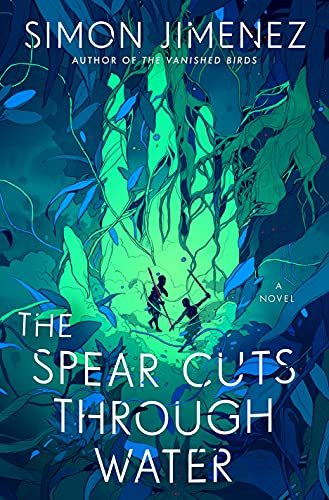
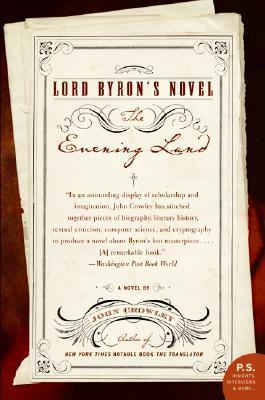
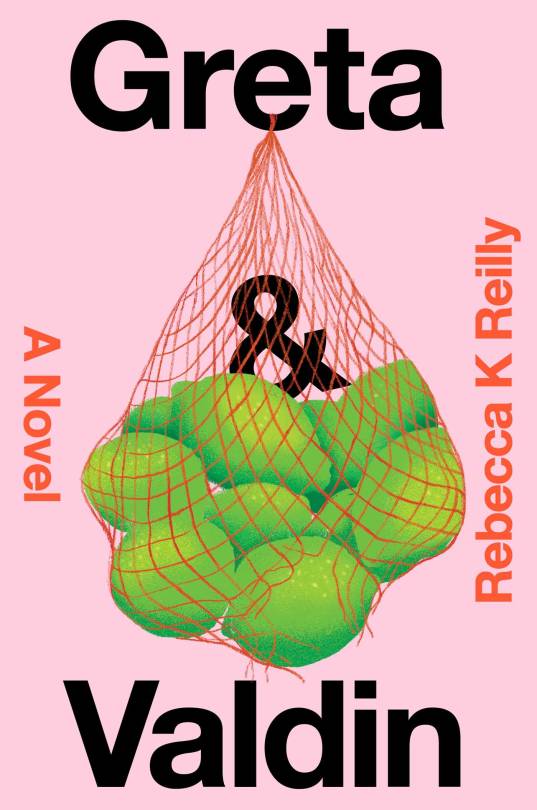
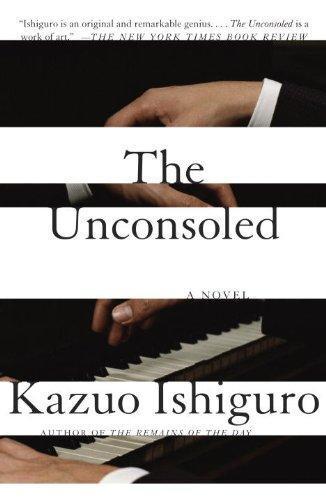
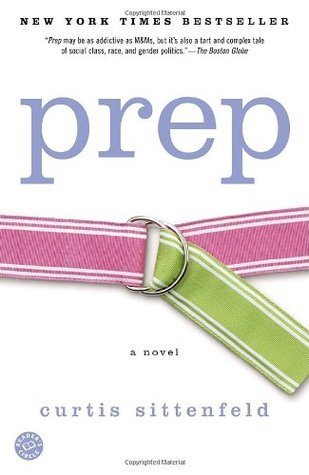
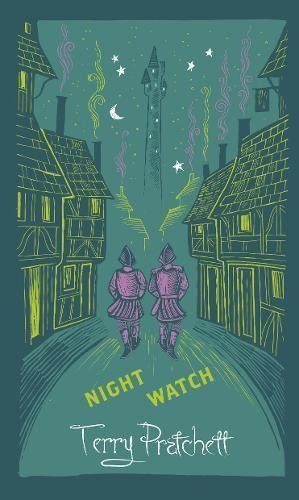
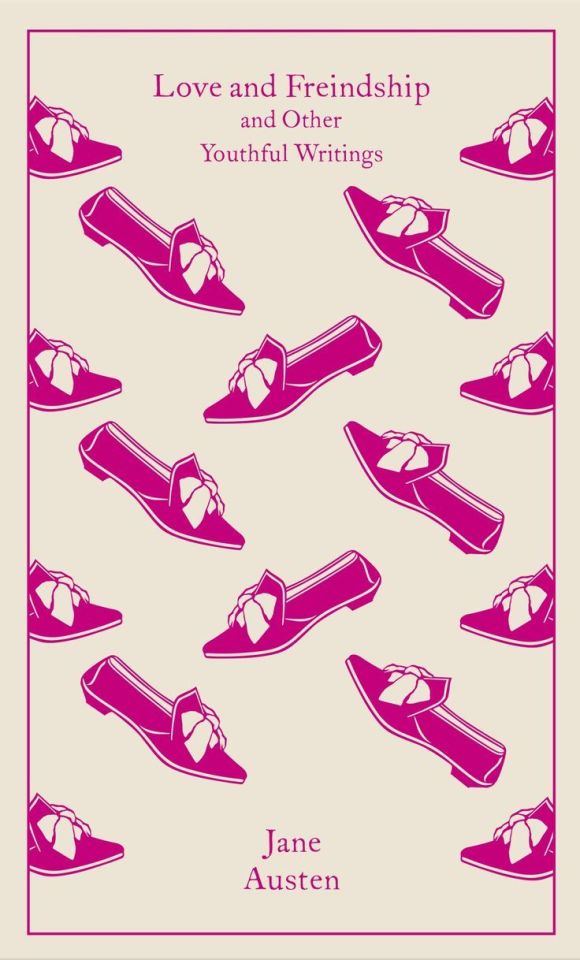
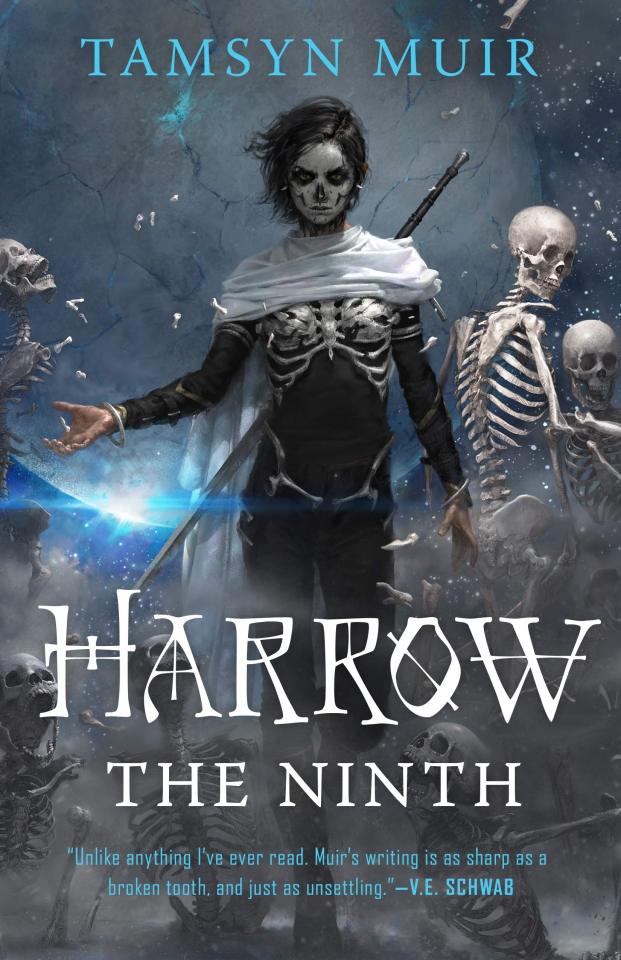
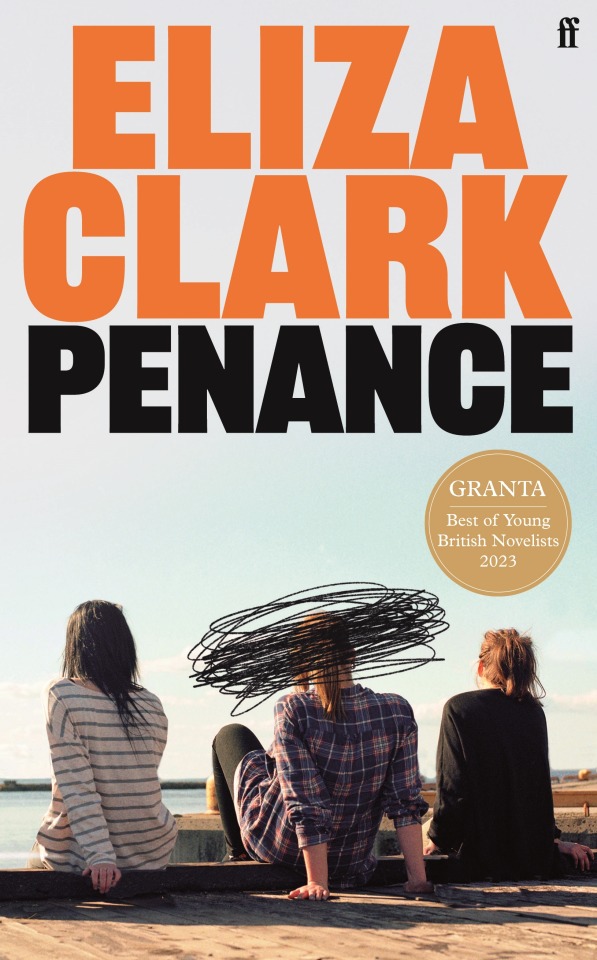
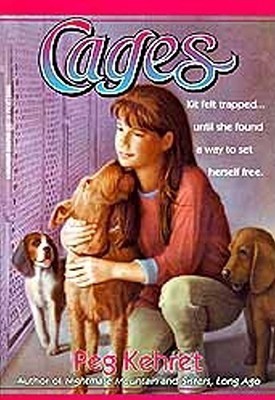
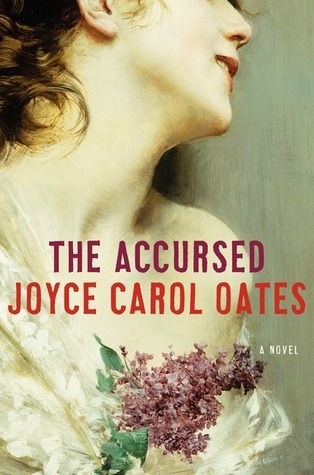
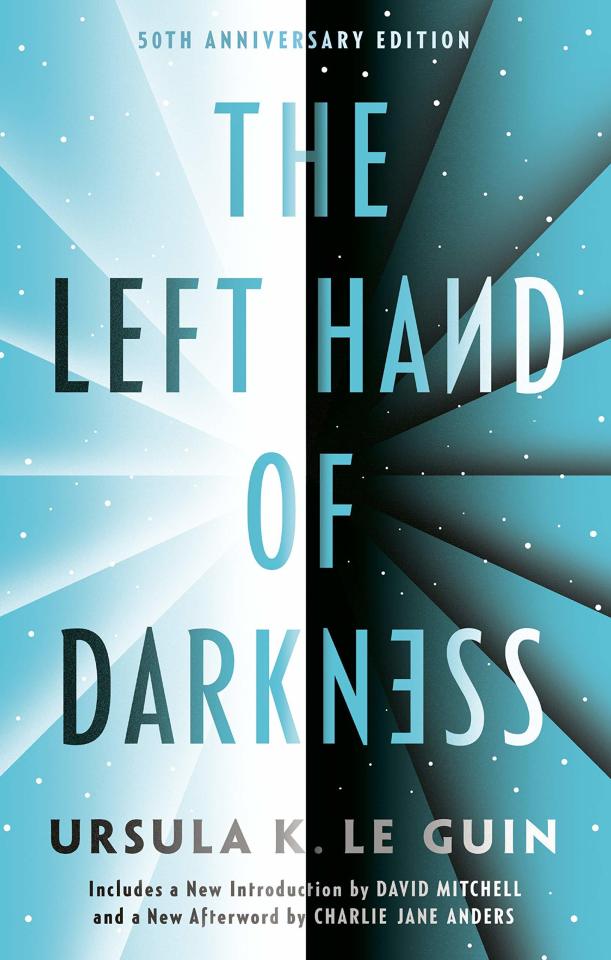
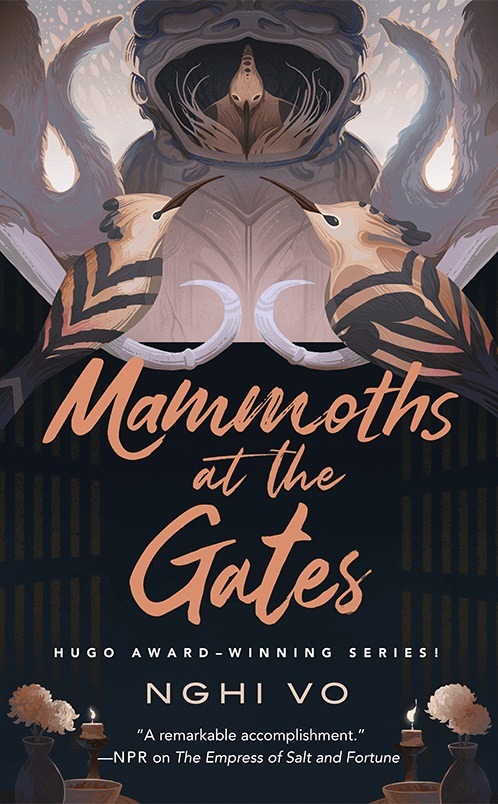
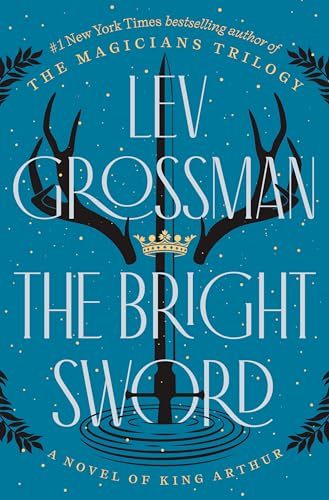
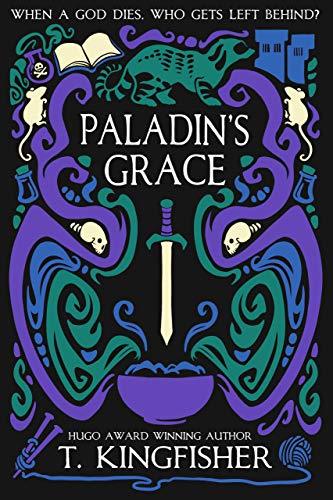
I was going to make a post of all my "favorite" books this year, but instead I decided to go with my "noteworthy" books of this year, the ones that stuck in my head when I look back over what I read. I steered away from negativity, so while a couple of these weren't 4 or 5 star reads, they still stuck with me for positive reasons and gave me stuff to think about! I had a fair share of 1 star books this year too, but I'll leave that for my goodreads if you're curious to read me be a hater! lol. See below for some thoughts on each!
~~~
The Spear Cuts Through Water by Simon Jimenez: new all-time favorite. If you are someone who loves the craft of the novel, the complexity of language to impart meaning, if you want a story that iterates, that invites deep thought and deep contemplation, you have to read this. It's one of the most cleverly and expertly constructed works of fantasy fiction I've ever read. The world-building, characters, and plot are all vivid and unique, and the woven narrative structure is a true masterpiece. I think this stands head and shoulders above every other work of fantasy I read this year, and I'll be thinking about it and re-reading it for a long long time.
Lord Byron's Novel: The Evening Land by John Crowley: This one had been on my tbr for a million years and I finally got to it this year. It's a perfect book 2 me even though it's pretentious as hell lol. It just happens to be pretentious about stuff I love to think about. When a contemporary author borrows the style of a known master with the English language and does it in a way that feels authentic and loving, I'm always impressed and interested. It also has this specific trope of "finding the lost works of the masters" and uncovering interesting secrets about the past that I always love. And I learned some stuff about Ada Lovelace, to boot!
Greta & Valdin by Rebecca K Reilly: I have a lot of friends who are allergic to trying literary fiction and this is the book I would pitch them to try, because it's not a huge bite to chew on but it does give a good example of the gifts this type of book can offer. It's about people my age in my current moment, queer and disaffected and confused and scared, but trying so hard to find joy. It's a story about a loving and somewhat wacky family that manages to never tip over into being too tropey or saccharine. It gave me goosebumps and it put the biggest smile on my face.
The Unconsoled by Kazuo Ishiguro: If you ever wanted to read a book that feels like having a confusing and disorienting and anxiety-producing dream, read this book. I don't even know how much I "liked" it or how to articulate everything going on about it, but it's about, like, disappointment? Suffering disappointment and disappointing others, and getting in your own way. And it's about parents failing their children, more specifically. And it's funny as hell, as Ishiguro usually is.
Prep by Curtis Sittenfeld: This was one of the bigger surprises for me this year, because it's my third Sittenfeld novel and I pretty strongly disliked the other two I've tried. But this was a book club pick so I sighed and resigned myself to another mediocre read. And instead, I really really liked it! I think the thing that sticks in my head most, months after reading it, is how it accurately captured something super painful and true about being a young person who doesn't know how to behave, and who is afraid of what other people are thinking of you. This is one of those books where the protagonist is not "fun" to hang out with in the traditional sense, she's often incredibly infuriating. But gosh, is she hashtag-relatable all the same.
Night Watch by Terry Pratchett: I have slowed down a lot in my quest to read through the entire Discworld, so I only read I think two or three this year. But I finally got here, to one of the top-tier novels in the series, according to most people. And, yeah, I get why it's a favorite. Samuel Vimes, the man that you are. Love a book that can make me snicker at the funny jokes on every page but then also punch me in the solar plexus whenever it damn well wants to.
Love and Freindship and Other Youthful Writings by Jane Austen: Despite being an Austen devotee, I'd never really bothered with her juvenalia, and that was a mistake! This was so fun. This volume included Lady Susan too, which I also hadn't read. These pieces are less polished and obviously not quite as deep as her completed novels, but god, she's so fucking funny. And because many of these pieces were just jokey little gifts she was writing for her family and intimate circles of friends, there are some really saucy and bawdy kind of shocking jokes in here that never would have appeared in any of the published novels. You also see her trying out some tropes that she later refines in her more well-known works, and I love seeing a bit of how the sausage gets made.
Harrow the Ninth by Tamsyn Muir: I read Gideon last year, and Harrow & Nona this year. Harrow is definitely my favorite of the three because she's so fucked in the head, and I'm a sucker for a clever second-person conceit. This is the kind of book that is patting itself on the back about how clever it is all the time and I don't even care because I'm too busy giggling at the bizarre and depraved events playing out on the page. The part that sticks in my head most is probably Harrow and Ianthe fleeing the room in abject horror as Mercy and Augustine initiate a threesome with God. Truly hilarious.
Penance by Eliza Clarke: Tumblr-ites, you should read this, Tumblr itself plays a pretty big role in the plot, and you can tell that Clarke is (or was) a native or at least worked closely with someone who was. It's probably one of the best fictionalized version of fandom stuff I've ever read, even though it's... uh... about RPF mass-shooter fandom...... It's a disturbing read that takes the entire concept of True Crime to task in a way that feels complex and not overly scolding? Like, it's not a book that slaps true crime fans on the wrist but it does make you think about the role that our social fascination with violence can play in the lives of people who might need help they don't know how to access.
Cages by Peg Kehret: Middle grade re-read! This was one of my favorite books from childhood and I remembered a ton of details really vividly, but I'd forgotten how hard it goes with the alcoholic stepfather thing... and goddamn, this book is sad. I actually cried real tears reading it during the part about Lady having the love light in her eyes. I gave my cat lots of kisses on her little snoot after reading this.
The Accursed by Joyce Carol Oates: This was a re-read that I first encountered as a senior in undergrad. At the time, I liked the book and I wrote a term paper on it, but reading it again today just shows me how ill-equipped 21-year-old-me was, to grapple with the book's core themes around race. I was skittish about it a decade ago, and this time the book kind of... unfolded for me in a way that was really valuable and interesting. Plus, say what you will about Oates, she's a fucking excellent writer of prose, this is a very readable and interesting book. For those of you who have become Dracula-enjoyers over the past few years because of Dracula Daily, I'd super recommend reading this book as a companion to Dracula. It's a direct homage in some fairly obvious ways (one of the main characters is named Wilhelmina) and also an alternative exploration of some of Stoker's original theming.
The Left Hand of Darkness by Ursula K. Le Guin: Not a ton to say here, this was a re-read and it's obviously flawless, incredible, a Favorite of All Time. This time reading it, I was doing it with a small group and we met every other week, so we read it sloooooowly. It was cool, I really got to take notes and Contemplate the Text in a way I hadn't in prior readings. The big theme that jumped out this time around was all the dichotomies, everything a complement and an opposite. The travelogue aspect really stood out to me this time too, the planet of Gethen becoming a character on the page to me more than it ever has before. And talk about gorgeous writing, holy hell.
The Singing Hills Cycle by Nghi Vo: I read the first one last year, then three more this year, and I still have one left to go. These are really nice literary snacks, I guess you could say? I like the vibe, I like the simple yet powerful prose, I like the distinct and memorable characters. I'm interested in the theme of "why do we tell stories" (as Tyrion Lannister might say lolololol) and a few of my favorite books this year grappled with that as a core idea. These books have this classical, folkloric vibe to them that I greatly enjoy. I hope Vo writes a dozen more, I'll keep reading.
The Bright Sword by Lev Grossman: Okay, this one probably doesn't have the depth or staying power of most of others on this list, but I really enjoyed it and it fits in with that general theme of why do we keep returning to familiar stories and characters again and again? What are we learning about ourselves and our cultural identity through these familiar figures? This was also a text that did that "setting as character" thing really well, with the land of Britain having a presence all on its own, standing up to any of the individual characters. There's a moment in this book with Bedivere and Guinevere that made me cry, and be on the look-out for the most insane take on Lancelot du Lac I've ever encountered. Ever wanted to read a book where the fae folk engage in pitched battle with literal Angels of the Christian God? Then this one is for you.
Paladin's Grace / Paladin's Strength by T. Kingfisher: these are the lowest star rated books that made it onto this "2024 notable" list for me; I grappled with my conflicting feelings a ton on this one, so feel free to read in full at that link if you so choose. Short version is that these are pretty poorly written on the level of the sentence, the prose could use some serious polish and that was enormously distracting. But, when I set that aside and met them where they're at, I can appreciate them for some cozy fantasy romance. The thing that stuck in my head the most was the promise of the premise, there's a really cool back-story for the lead characters, and intriguing world-building being set up in this series, and it's that larger structural story that had me going back for book two. I think I'll probably get to the next couple books in the series before too long. I just hope one day that promise of the premise actualizes and provides a bit more intensity, because these were fairly tepid, if comforting, reads for me. I haven't been able to get the Smooth Ones out of my head though, that's for sure! So creepy!
~~~
So there you have it, my 2024 in review! There were plenty of other books I really loved reading this year, but I think this encapsulates the bulk of what got stuck in my brain, the stories I keep turning over and over in my head like a mental fidget toy. I'm excited to read more of some of these authors and strike out into some new territory in 2025!
10 notes
·
View notes
Text
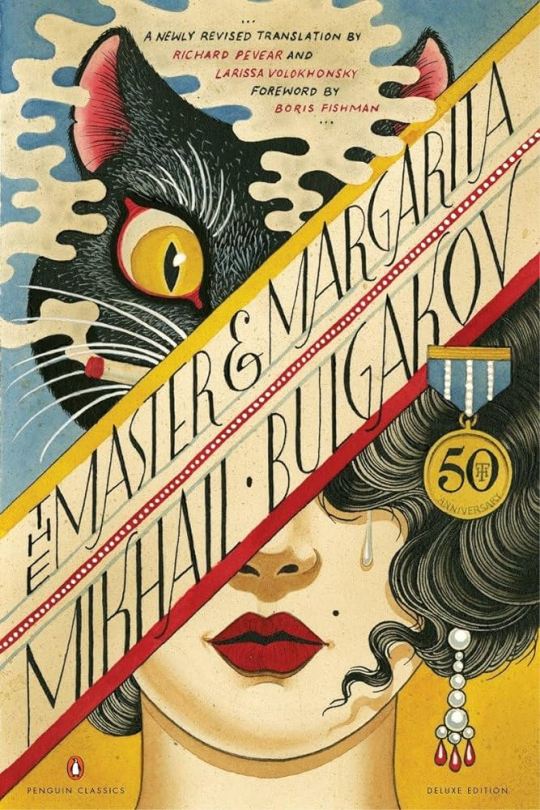
[REVIEW] The Master and Margarita by Mikhail Bulgakov
3/5 stars (★★★)
"He does not deserve the light, he deserves peace."
This was an oddly enjoyable read for the Christmas season. Before I read The Master and Margarita, I had zero idea what the book was about and 412 pages + a lot of reviews later I still can't exactly say what even happened here. The Gogolian influence was very persistent in Bulgakov's prose, so I highly recommend reading some of Nikolai Gogol's stuff before getting into TMaM. That being said, I agree with people that it's a novel that stands on its own in spite of its heavy context. I did some background research into Bulgakov's biography, the ten-ish years it took for him to write the book, Stalinist Russia, and the 25-year gap between when he finished the manuscript (which don't burn!) and the actual publication of it after his death. Critics seem to be unanimous in agreeing that the Master is a self-insert of Bulgakov himself, which I really felt to be most fitting during the scenes in the hospital where he discussed with Ivan the Homeless his philosophies on art and the current social order. I appreciated Bulgakov's harrowing criticism on Soviet Russia without actually being too grave about it; the dark humor is good because the "dark" is the adjective that informs the noun, not vice versa like a lot of "satire" plots which I feel fail in comparison. The magical realism was a good kind of wacky (although I wouldn't exactly call it magical realism, but that may be just because I'm more used to its South and Latin American literary uses). I liked Woland and all the beheading episodes. Bulgakov's tongue-in-cheek treatment of citizens "disappearing," private executions, political censorship of the Soviet intelligista, and the air of general repression felt in all people, especially artists, during the time were spot-on (though that's coming from someone who never experienced Stalinist Russia and have only done humble research into it). I think TMaM is a great testament to the political and social climate of Russia in the 20th century. Bulgakov captured everything so well whilst still retaining a sense of wonder, folkloric absurdism, and, at times, tender humanity.
Personally, I didn't like the scenes set in Yershalaim with Pontius Pilate and Yeshua Ha-Nozri, though I appreciate their symbolic meaning and narrative weight as a whole. I honestly found myself falling asleep, especially during the infamous conversation between Pilate and Jesus. That being said, I found Bulgakov's portrayal of Jesus very intriguing, as well as his decision to refer to ancient Jerusalem by an alternate transliteration from the Hebrew quite bold. It gave a sort of distancing effect to the otherwise well-known Biblical places that separated their religious (over)-associations with actual historic (and fictionalized) context. I like that Jesus became "Yeshua," with the name obviously coming from the Aramaic word for "the Lord is salvation." Bulgakov making Jesus' last name "Ha-Nozri" meaning "of Nazareth" specifically was quite beautiful to me, as it places him as coming explicitly coming from the town of Galilee (north of Palestine), which Jesus was said to have lived in before he began his ministry. Instead of "Jesus Christ" or "King of Israel," which are common ways he is referred to, Bulgakov opted to name him according to his native Palestinian roots first and foremost. There's a lot of literary analysis you can take from that, but it's inherently a very defiant decision that I appreciate Bulgakov for making, and I'm saying that as a reader in 2024. Bulgakov, amongst other subtle cultural references, also mentions the keffiyeh ("kefia") in his novel a handful of times, most strikingly in the scene when Matthew Levi essentially curses at God because he was too late saving Yeshua from crucifixion. Bulgakov here is writing almost 100 years ago from where I am with zero idea of the political climate happening now in my world (although Zionism was still obviously present in early 20th century Russia). Matthew Levi's keffiyeh was one of the book's most resonant images for me, even if Bulgakov didn't exactly intend it to be as jarring as it is since he couldn't have predicted the genocide happening in Gaza right now. However, this small link I've noticed between the past and now is just an example of literature transcending time and space by acting as a bridge for human connections. Long ago, one man from Palestine disrupted Jerusalem and Rome's established (tyrannical) order and then centuries later a writer in early 20th century Russia adapted Jesus' story to criticize the cruelties and ridiculousness of the Stalinist regime, and then I in 2024 am reading this as the mass killings are happening in Palestine. Through this one book, three generations -- three timelines -- are somehow connected.
My final comment is that TMaM, particularly that connection I've personally drawn as a modern reader, reminds me why humanities, reading, history, literature, the arts, etc. are so timelessly and universally important. I know I may sound crazy and "you're just trying to be deep," but it really honestly is the truth. Bulgakov explicitly highlighting Jesus as Palestinian in Soviet Russia as a form of political protest and me in 2024 reading this book just as Jesus' same homeland is being massacred during Christmastime ... it's so haunting. The book being finished in 1940, meaning it and Bulgakov's very Palestinian Jesus is older than the "state" of Israel is an even more damning fact in and of itself. Even though I gave the book 3/5 stars, it's surely a story I will remember. That final image of the four "horsemen" riding off into the distance just as another dawn is breaking over a dictatorial empire history knows is doomed to crumble that concludes the novel will stay with me.
#mikhail bulgakov#bulgakov#the master and margarita#russian literature#literature review#book review
7 notes
·
View notes
Text

Writeblr (Re)-Introduction
« A B O U T »
Hello there! Call me Ink (she/her pronouns). I'm a black female writer in my late 20s. I've been on writeblr since 2018 (according to my ~ archive ~) and I've probably made a couple intros since then, but nothing quite as organized/formal as this so - here we are!
I primarily write contemporary/literary fiction (which I know isn't super prevalent on writeblr so happy to bond with any fellow litfic writers). I enjoy writing deeply introspective, character-driven stories (I think because, I'm learning, I'm a deeply inspective person lol) so if that's your cup of tea then check out my WIP(s) below :)
Links/places to find me (if you are on any of these sites, pls connect with me! I'm actively looking for other writers to follow)
Wattpad
Instagram/Twitter: @rianeblackwell (my writer pen name!)
Random things about me/how I run my blog
I'm a dual-degree bio graduate student so I spend my days pipetting shit in a lab
outside of writing, I enjoy reading (when I have the patience and bandwidth for it), watching anime (fav: fruits basket; currently watching: one piece), (guided) painting, and...sleeping?
I am ask game and tag game friendly! Though it may take me time to respond to tag games.
You will typically find me posting my random thoughts about things (tagged: inkoverted thoughts) - as I said I am introspective af so this constitutes like 90% of what I post. my writing you say? yeah we're still working on growing the gonads to post about that consistently or at all :^)
Because I have so many thoughts, I just started a writeblr discourse series called Spilled Ink (tagged: spilled ink) so that I'm not just shouting into the void and can (hopefully) have people talk back to me and share their opinions
I am always down to talk! seriously. a message in my ask box will never fail to brighten my day so come talk to me about anything and everything.
« W I P S »
Again, unlike most on writeblr (I feel like such an oddball here sometimes), I do not have a trillion WIPs to list and advertise. I'm very much the person that prefers to focus on one WIP at a time. That said, I do have one main WIP and a side-WIP that I started out of spite (and haven't touched since):
My Dearest Enemy (YA literary fiction) | WIP intro | WIP tag | read on wattpad
a coming-of-age story about a 17-year-old aspiring artist whose artwork is deteriorating as she struggles to come to terms with the death of her father a year prior. as the story unfolds she meets a series of new people who force her to contend with the bleak reality she's settled for. the emotional journey that results opens up her world, and ultimately unearths a shocking truth.
Untitled Romance WIP (Contemporary fiction) | no tag or intro just yet
a story about a black female physician assistant living a life of self-sabotage as she jumps from one unfulfilling "relationship" to another. she's been convinced, by society and past experiences, that someone as "dark" as her needs to settle for any form of affection she can get. fairly tale love stories with happy endings don't happen to people like her. But when her crush from high school who unknowingly started her streak of self-sabotage suddenly reappears in her life, she has to decide whether it's worth giving him another chance.
42 notes
·
View notes
Text
begging twitter to stop showing me tweets of people with no reading comprehension misrepresenting things I said but since i was going to make this more in-depth post Anyway .
when i say imogen is better read as a metaphor for generational trauma than she is a metaphor for queerness or chronic pain, i’m not talking about legitimate traits she has as a character. obviously she is queer. obviously she experiences some form of chronic pain (though i would argue her magic better suits chronic illness not pain because she states that it’s Not always painful, but it does always influence how she lives her life).
when i talk about how well she’s understood as a metaphor, i’m talking about when i’m looking at her as a part of a story, as an arc that i am witnessing rather than in the more typical fandom way of this is a fictional person who interacts with exandria as real people do. and that is a fun way to interact with characters, i enjoy it a lot! but when i say imogen (to me, as i for some reason have to clarify on my own blog which implies that these are my own opinions and not absolute fact that needs to be accepted by people on the internet with different experience and opinions than me) is best read as a metaphor for generational trauma, it isn’t a dismissal of her queerness or her illness, it’s just me thinking looking at her from that angle is more compelling.
imogen has been one of my favourite characters and least favourite characters in campaign 3 because i tend to analyse her through a lens of generational trauma and she ends up looking extremely familiar to me as someone with a family that carries their’s heavily which is as comforting as it is frustrating.
for me the main thing that looking at imogen through a queer lens of literary analysis fails to account for is harm. on the one hand - the harm that imogen experiences, not because of how people treat her for who she is, but that exists simply as a factor of her being ruidusborn. on the other hand a the harm that imogen causes. not to say that she is some malicious villain waiting for her chance to harm others, but that there are things about being ruidusborn that very much do incline her towards violence in a way that she might not otherwise be - i think about the conversation after she went nuclear and chet brought up people being scared of her connecting that to her father keeping distance. the only harm that queerness provides comes from society, and that isn’t the case in exandria. even metaphorically, the thing that society fears in ruidusborn people (while it has certainly been exacerbated by centuries of superstition and practices like we saw in zephrah) is a tangible threat. imogen’s magic when not controlled can wipe out a city block, but queerness poses no threat.
that’s why i’m not compelled by imogen’s backstory as a queer metaphor. not because i’m some imodna anti (i very emphatically am not but this fandom kinda makes me wish i was sometimes) or because i think exandria’s lack of homophobia/transphobia means that characters can’t be viewed through a queer lens or that critical role doesn’t contain some of the most compelling queer metaphor i’ve encountered. imogen just isn’t one of those characters, not because she isn’t queer, or because i think her story shouldn’t resonate with queer people, just because i find the generational trauma angle more consistent.
it’s similar with the chronic illness angle, which i will refer to as illness but you’re welcome to emphasise pain, we all have different vocabularies for the experiences we face. but just to give context i’m running off laura’s comparison of imogen’s powers to her own sensory issues and anxiety which while often Lead to pain, fall more into chronic illness in imogen’s context to me. and i do think there’s substantial comparison for imogen’s story as a metaphor for chronic illness, but i think that was much more true earlier in the campaign than it is looking at her from the current context. her beginning motivation being her search for knowledge about her powers really resonated with me as similar to someone experiencing symptoms of chronic illness but who could neither figure out how to treat them or what they were caused by.
but then imogen got more information, specifically about her mother, and her priority became not understanding her powers but understanding her current state as a person - how had she become the person she is, inclusive of her powers but very much emphasising her lack of a mother who became more and more present in the unweaving web of ruidusborn lore. that’s when i was less compelled by the chronic illness reading and more compelled by viewing her as a metaphor for generational trauma. had that not been enough on its own, imogen’s visit to relvin and her recent thoughts on her mother would be enough to convince me.
the part that makes me hesitant about this post is that generational trauma is so intensely linked to the contexts under which it is created and perpetuated. so i can’t really point to specific scenes as evidence of specific things that prove generational trauma is the most compelling and i don’t really want to unload that much of my own experience to clarify my thoughts on a character. but vaguely, i will say that imogen’s relationship with her parents is obviously the clearest source for my reading her as a metaphor for generational trauma. the fact that relvin, the only person in her family without the thing that draws society’s ire, is also the person that she has the most willing anger at is also indicative of this to me. in general, imogen’s rage that so easily transitions into sadness and vice versa comes out a lot in conversations about parents. most recently, i think about ashton’s lovely speech about found family and his distrust about parents and how as they were speaking, laura seemed to be playing imogen as sadly in thought versus months ago when fearnes parents showed up with striking similarities to liliana and imogen’s words of wisdom were let’s hurt them all.
and like. to me that angersadnessvengeancegrief is particularly evocative of the feelings that arise when you are in a family with generational trauma, especially when you are aware of it. because imogen can and has followed the logical steps that have led her and her family to where they are. early on when recounting her relationship with her dad she seemed wistful but understanding of the distance between them. in nearly every encountered with a parental figure imogen seems to be some level of distrusting for the most part, but she’s still holding out hope that her mother will see the good side. and further, there’s the complication of how dire her losing her powers seems to be, and how inextricable her powers are from every aspect of her life. she’s also southern and from a blue collar family. this means nothing except it also means a whole lot.
this is messy and not well organised but if you want a good essay you’re gonna have to pay me money for it but tldr: i say things i believe on my This Is My Opinion Blog and i don’t think i need to explain my thoughts to strangers on the internet but this was already half written in my drafts and if people are gonna shit on my opinions please at least do it in good faith and shit on my actual opinions not the ones you’ve decided i have.
#it’s just the. your mother leaves and you know nothing you don’t even know that she Chose to leave you just know she’s gone#and your father is there in every way he can be which isn’t Enough#and then. you do the same thing your mom did and you find the answers she found but. you’re finding a way out of it . not Completely .#and not Perfectly. but enough that you’re angry that the world wasn’t kind enough to her to give her a way out#and you’re angry that she probably wouldn’t have taken a way out if she found it#and you’re just. getting hurt by her over and over and you’re putting your life and friends at risk over and over in the thin Hope#that this time when she hears you out she’ll actually Hear you#also . just in general. i do not worship the ground of the mn campaign for anyone to accuse me of thinking cr characters can’t be queercoded#i’m stronger than you . i see the queerness of fjorester which only people with real reading comprehension understand .#anyway this is all light hearted if i was actually like . Mad this would be like. one sentence long#imogen temult#cr3#critical role#the temults#cr meta#listen man. imogen is personal to me i hate her i love her i want to hit her i want to hug her i can’t look at her i wanna study her#my posts
90 notes
·
View notes
Note
Thoughts about what makes a good villain!
Hello <3 sorry this took so long to answer but I'm in the middle of planning and executing a move to a different country.
I think the only real crime a villain can commit is being boring. They can be contemptible, stupid, cartoonish, completely detached from reality, or they can be brilliant, dangerous, sexy, literally correct; they can be all style or all substance; the only real litmus test is whether they're entertaining.
Some of my favorite fictional villains and why I like them:
Currently, I'm reading the Crown of Stars series by Kate Elliot, and Hugh is absolutely one of the most contemptible villains I've ever encountered. The first book was genuinely hard to read because of what a fucking monster he is, and Elliot knows how to draw the most out of it - stretching his comeuppance over 6 books because even though he's fucking despicable, he's also unfailingly polite in most circumstances, and a beautiful man of noble though illegitimate birth and high rank in the clergy, so people have a hard time believing him to be as evil as he is even if they've wronged him before. At the same time, Elliot also does a very good job of making sure you never forget exactly what he is, so even when he returns to the people he's wronged acting contrite, you see through it. The ultimate effect is that even 5 books in, I'm hollering at him to kill himself (usually when driving alone in my car), and I dunno if I've ever been that profoundly affected by a literary antagonist before.
Kuja from Final Fantasy 9. He's spoiled, he's beautiful, he's a babygirl, he's pathetic, he's 24 and should have been at the club. I like how he isn't afraid to spam his most powerful spell whenever he's losing. Honestly whenever you see me rooting hard for a villainous sorceress (or occasional prettyboy sorcerer) it's for similar reasons.
The Obligatory Sasuke mention, which is wild because I think everything that I find compelling about him is something you have to read in direct contradiction to Kishimoto's intentions with the series. In a meta sense, I find it super compelling how he's the sort of villain whose motivations unavoidably invoke the fundamental problems in the setting that the tepid liberalism of its core themes and protagonists cannot address, and how that's subsumed into an emotional arc so he can be the redeemed shonen rival in the end.
Inspector Javert is a favorite because he forces the audience to separate legality from ethics; past that, he's also just a really good examination of the sort of person you'd become if you gutted everything that made you human and replaced it with legalism.
Cersei Lannister from the ASOIAF is a great example of a book letting you into the internality of a villain, showing you they're a complete wreck of a person, and it not doing anything to soften the blow when it comes time for them to ruin things for everyone again.
Death from The Seventh Seal is one of my favorite cinematic depictions of personified death. He isn't gentle or comforting like some depictions - he's underhanded, merciless, and for all his affability, relentlessly pursues Block such that his inevitably end claims the lives of just about everyone he loves, as well. It's nightmarish.
my boy SHEEV. Maybe the purest example of "it's good as long as they're fun". His inclusion in TROS is NONSENSE but I don't mind because I will literally never say no to more palpatine screentime.
Goku Black from Dragon Ball Super is great for the sole purpose that, when he's on the scene, a character you care about will die.
Those are a scattered selection of some of my favorites. I wish I had a more compelling analysis for who was in or out, but it really does boil down to don't bore me and there are a lot of ways for a villain to be compelling. Thank you for the ask ^_^
8 notes
·
View notes
Text
hi friends! since it’s been 3 months I thought I’d do a little updated about me :p
you can call me blossoms! 🌸 comes from the url obviously which I decided on in seconds when sitting in the middle of my bed making this blog at 3am bc I love dan and phil and cherry blossoms/japan/japhan etc etc
(as a side note I don’t share a lot of personally identifying info on here for a lot of reasons, don’t wanna be found out + professional reasons and tumblr is a great platform for having being a phannie as my main identity but I will occasionally overshare in the tags or random posts. for the most vague details I’m canadian and a poc ig? if you want to be friends or discuss anything in more detail im happy to share in dms just not in the general void lol)
some past fandoms I’ve been a part of tumblr or otherwise: avengers/marvel (this was in the peak in like 2016 and I followed it probably up until 2020 but dgaf anymore soz), marvel’s daredevil (their best show still love it), one direction/harry styles (harry was prob my biggest interest/fandom I was heavily involved in until like 2022 ish, i followed a bunch of accounts on my other blog and fan pages, went to his first solo tour in 2018, basically followed his every move- ik he’s not some underground artist but I lost interest when he kinda boomed and became SUPER popular I miss the early days of his solo era lol but still like his music), criminal minds, I think those are the main ones obv I lurk anytime I have a special interest lol
artists I like: twenty one pilots, arctic monkeys, the 1975, hozier, frank ocean, bad suns, muse, sufjan stevens, lana del rey, wallows, ed sheeran, lorde, zayn/hs/niall horan, paramore, the smiths, 5sos, kendrick lamar, fka twigs, fleetwood mac (this is off the top of my head just main ones ig there’s lots of other artists with specific songs I like and I also listen to my playlists from middle school often with p!atd and fob just the older stuff tho)
fave tv: derry girls, criminal minds, the office, gilmore girls, brooklyn 99, community, freaks and geeks, gossip girl, new girl, the end of the fucking world (short but a personal fave), fleabag, mindhunter- I like basic nbc sitcoms ok what can I say but currently watching Buffy and there’s lots of things on my watchlist like twin peaks I just never have time (aka always watching YouTube/dnp)
i like to think of myself as a cinephile when I really don’t watch as many movies as I’d like to bc of the same reasons listed above but I keep up with what’s happening in the film world and yeah some of my faves include: little women, sing street, before sunrise, aftersun, clueless, call me by your name, the perks of being a wallflower, big hero 6, la la land, zodiac, the social network, scream, the batman, bones and all, knives out, hp/twilight series
random interests: the scream franchise/saw/horror, until dawn (the game), youtube video essays, true crime content/criminology (in the most respectful way I promise I studied it and mean like actual data and researched podcasts not the weirdos that idolize certain people cough cough), perfumes/cosmetics, art, fashion, baking/food in gen, journaling, pinterest, reading (literary fiction/mystery/some ya)
idk what you were expecting this is literally all media but we’re all media consumers here lmao and I thought this might be a fun way to connect with other phannies if we share similar interests outside of dnp :3
#about me#blossoms trivia#me.txt#music#film#tv series#crying over everyone’s responses to my post before btw assuming most of you will see this ily all sm#i don’t wanna keep yapping anout myself so plz take this as an invite to tell me more about u :3
9 notes
·
View notes
Text
Writer Interview
Cheers for the tags, @autism-purgatory and @the-golden-comet <3
no-presh tag to @dyrewrites and @winterandwords, lets gooo
About Me
When did you first start writing?
I would've cut my teeth in the Neopets roleplay forums around age 11-12, likely didn't start writing standalone fics until age 18-19.
Are the genres/themes you enjoy reading different from the ones you write?
Not really, but also: I'll read literally anything if it's presented as a graphic novel. It's been a useful way to discover new things, and historical graphic novels have been a gateway drug to documentaries and video essays.
Is there an author (or just a fellow writer!) you want to emulate, or one to whom you’re often compared?
I don't really concern myself with emulation these days, but way back I tried to style a novel heavily on the works of Poppy Z Brite. I was too green to understand how to give a gothic horror a point, and "Wailing" fizzled out with not much more than wallowing in edgy misery. I've still never been able to salvage the plot or characters to this day.
Can you tell me a little about your writing space(s)? (Room, coffee shop, desk, etc.)
In order of frequency: lying on my stomach in bed with a heat pack, at my computer desk, hunched up in the corner of a train, being weirdly intense in the bar of a local theatre. So yeah, I do a lot of writing on my phone.
What’s your most effective way to muster up some muse?
I'm actually in the middle of reckoning with my own limitations caused by a chronic pain condition, so I'm more in the camp of "let the muse come to you". I try to check in often, I'd only to smash out a few more notes or paste in some research.
Did the place(s) you grew up in influence the people and places you write about?
No, except Sucks Down Under which is literally set in early 2000s Australiana. For the most part I'm making stuff up freestyle.
Are there any recurring themes in your writing, and if so, do they surprise you at all?
I didn't think there'd be so much symbolic cannibalism when I started out, but here we are.
My Characters
Would you please tell me about your current favorite character? (Current WIP, past WIP, never used, etc.)
Man. Adam "Flicker" Prescott from Wailing was the OG, man. He was supremely socially awkward and couldn't stick up for himself against his trans friend who was too angry about gender to see how cruel they were being. He could see ghosts. Eventually he got separated from his body entirely and became a spirit trapped in the mind of the vampire who killed him. He deserved better.
Which of your characters do you think you’d be friends with in real life?
Flicker could live in the back of my mind if he wanted. I guess he does.
Which of your characters would you dislike the most if you met them?
Setting aside outright villains, I actually would start to avoid Alistair from Impressions of Aire for long stretches of time if I knew him IRL. He's way too socially outgoing, man. That's not my speed. Small doses only.
Tell me about the process of coming up with of one, all, or any of your characters.
The speed at which I can come up with these dudes is too fast to clearly separate the process onto steps. It helps to have a prompt to get the bones down, like a genre or an event that will happen in the story. Then: nyeeeooowwww.
Do you notice any recurring themes/traits among your characters?
Autism.
What’s your reason for writing?
Also autism. Yes, yes, the joy of creation. But also: I am putting the characters through The Situations with wildly different parameters.
Is there a specific comment or type of comment you find particularly motivating coming from your readers?
Babe, I write original fiction. Any kind of comment at all is a joyous rarity.
How do you want to be thought of by those who read your work? (For example: as a literary genius, or as a writer who “gets” the human condition; as a talented worldbuilder, as a role model, etc.)
A trickster.
What do you feel is your greatest strength as a writer?
Grounding the actions of the story in some kind of reason, or at least a process that can be observed if not clearly understood.
What have you been frequently told your greatest writing strength is by others?
Knack for words.
How do you feel about your own writing? (Answer in whatever way you interpret this question.)
I have loved everything I have ever written.
If you were the last person on earth and knew your writing would never be read by another human, would you still write?
Yes, so I could read it later.
When you write, are you influenced by what others might enjoy reading, or do you write purely what you enjoy? If it’s a mix of the two, which holds the most influence?
Any story where I've tried to inject content that would make it popular has hit wall until I've allowed myself to rework it to be as weird as I truly want it to be.
11 notes
·
View notes